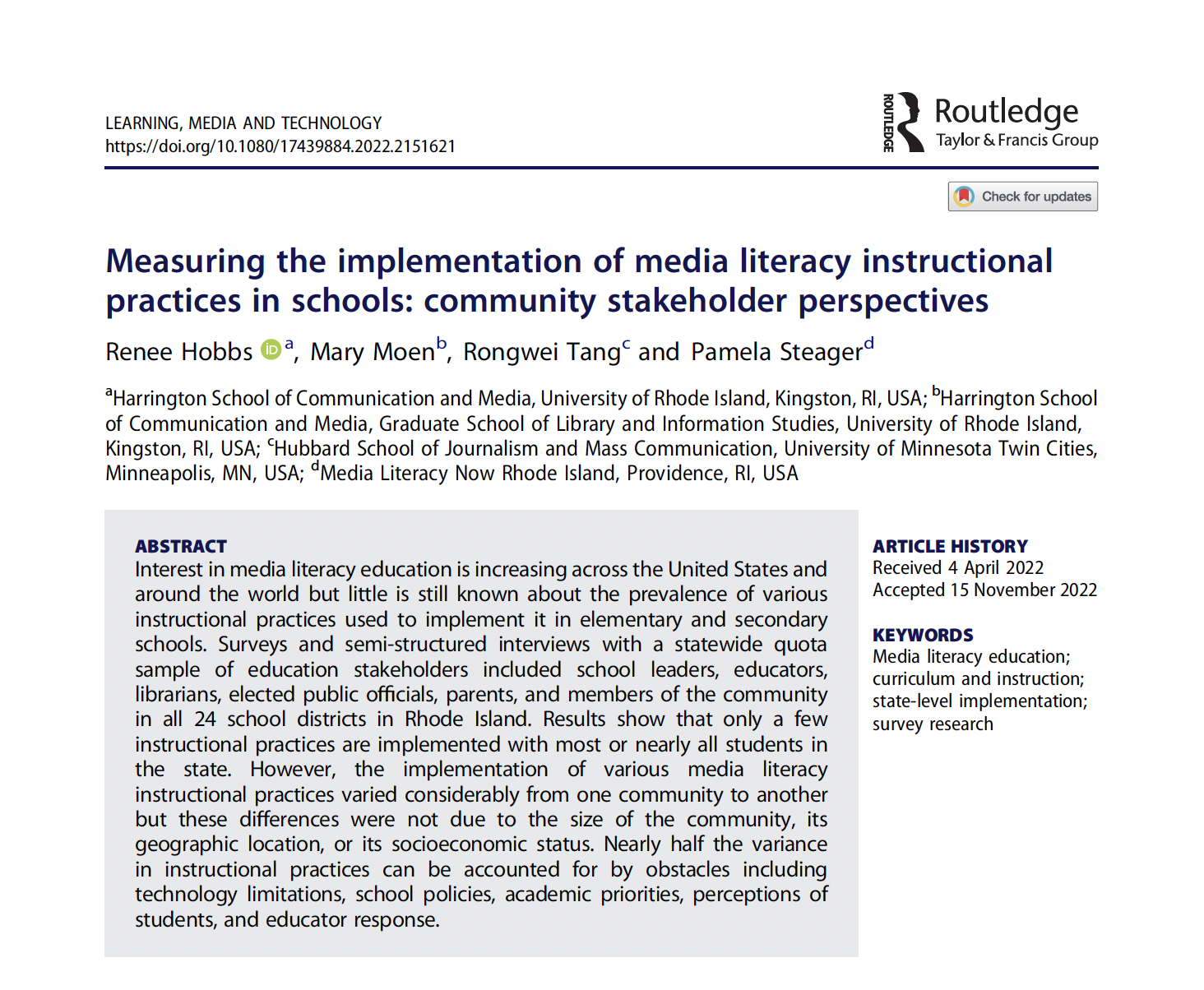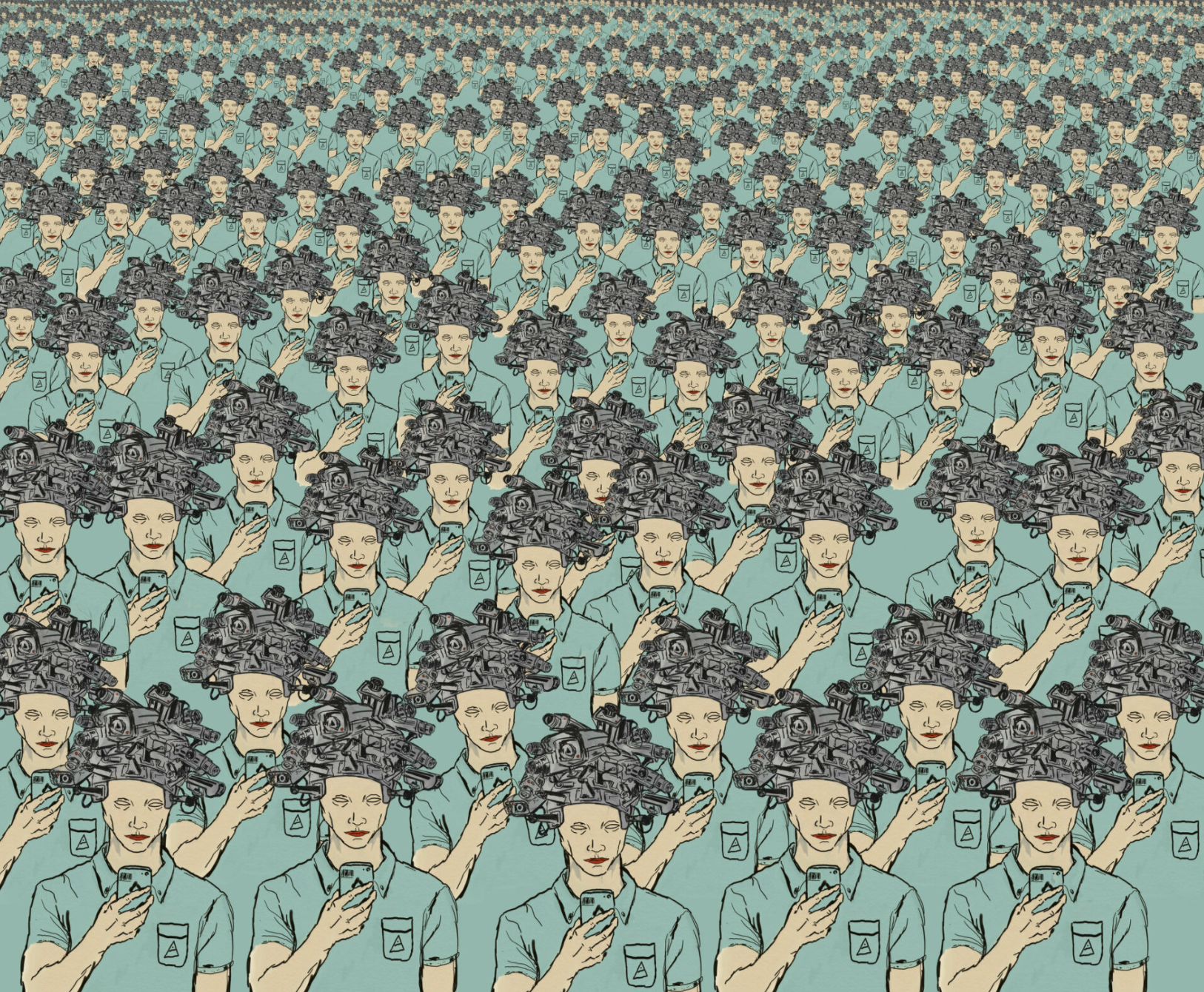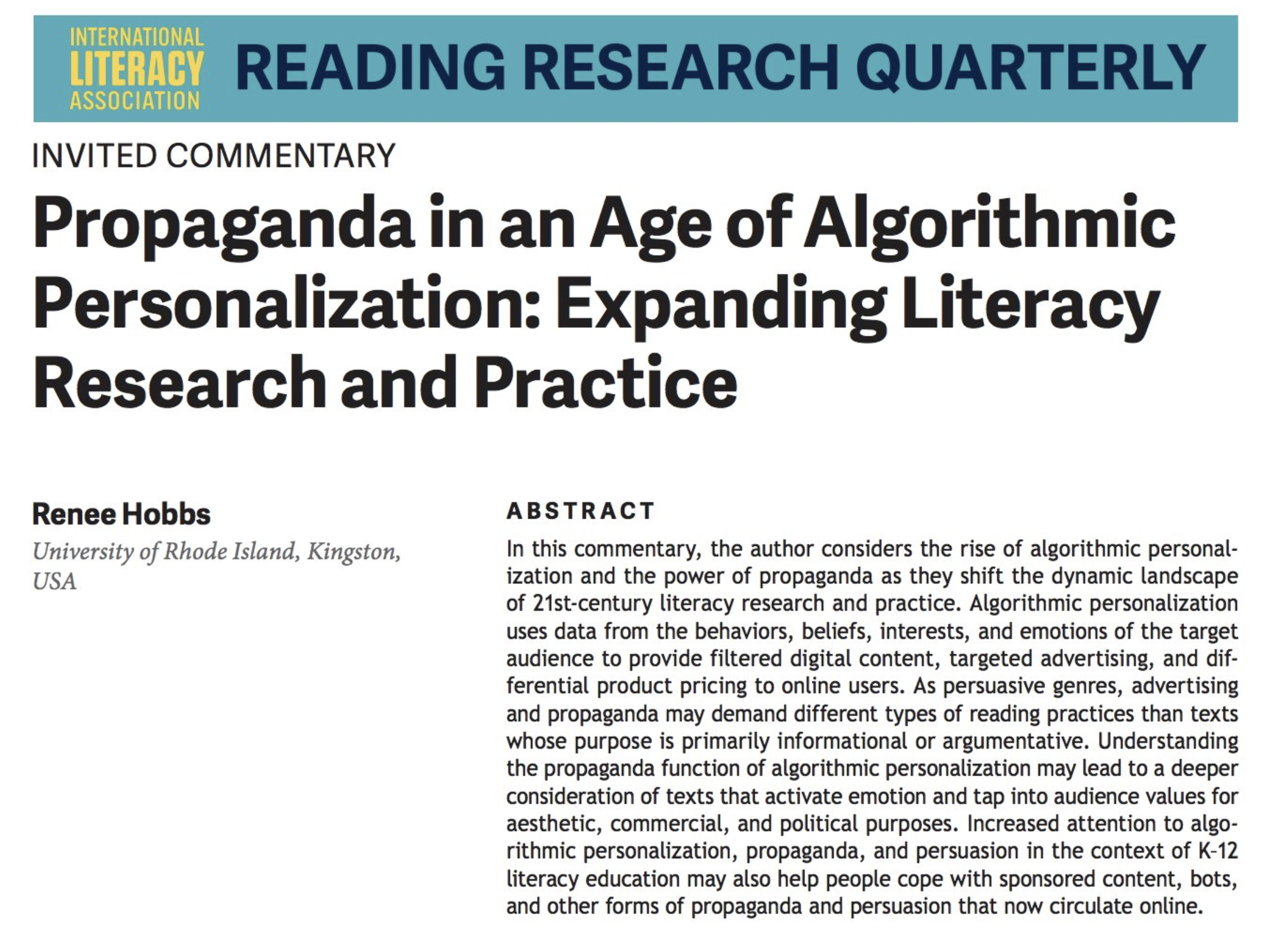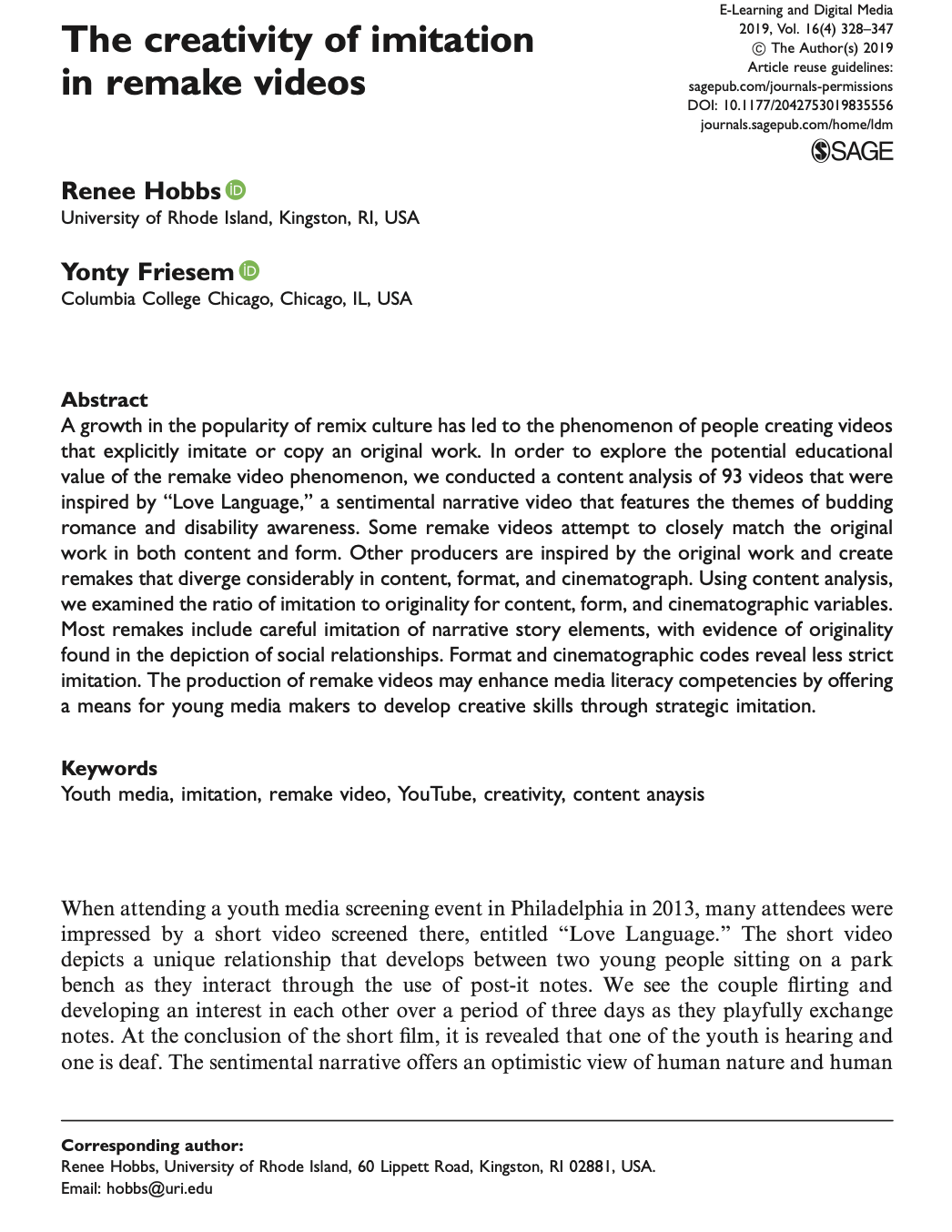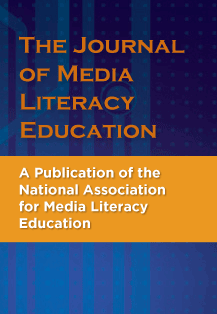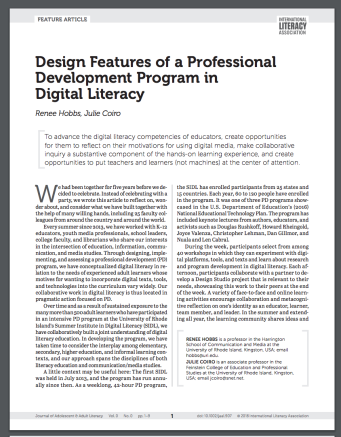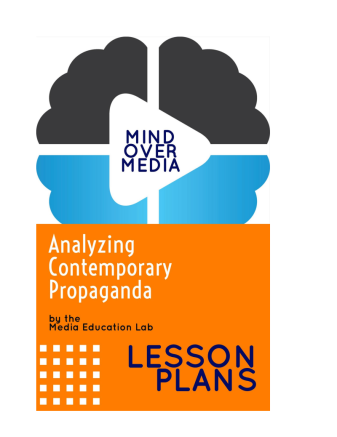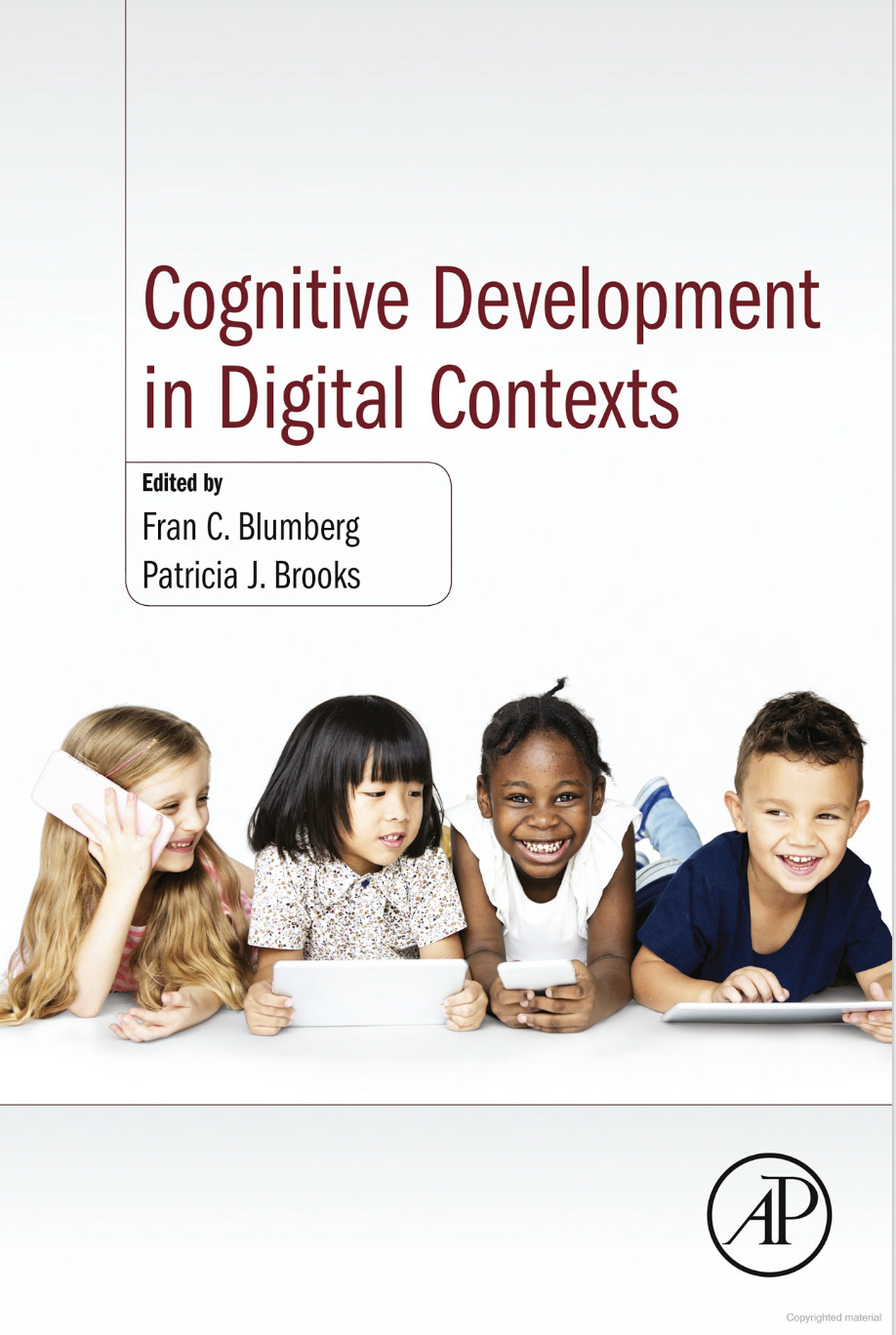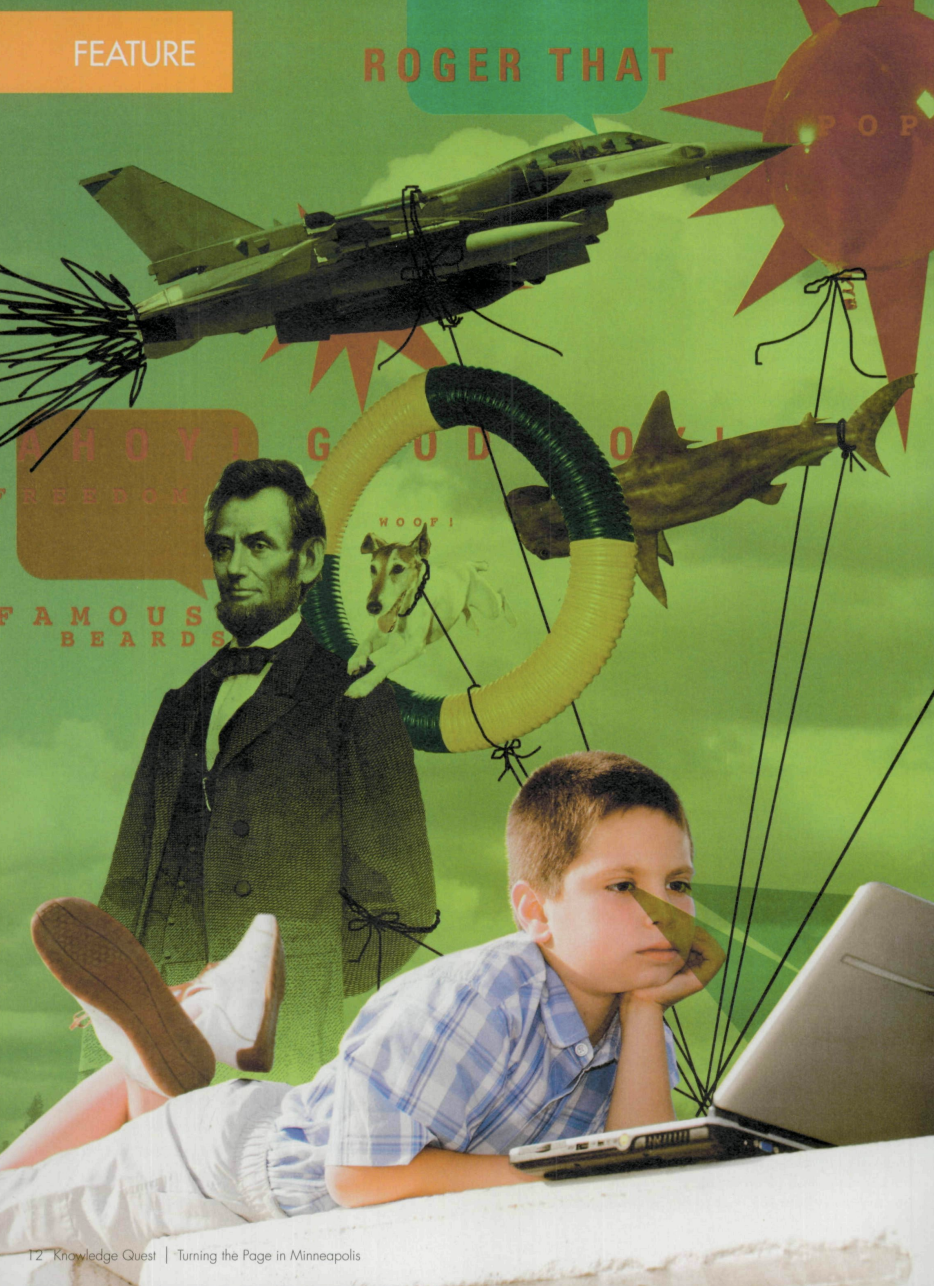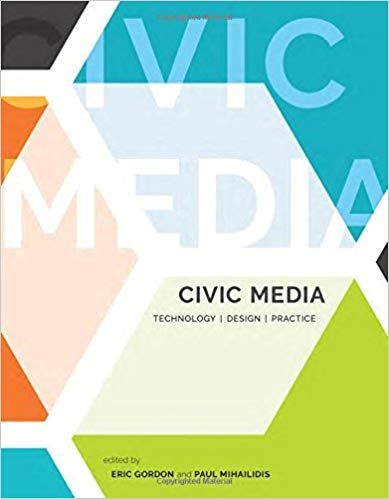- Home
- News Literacy
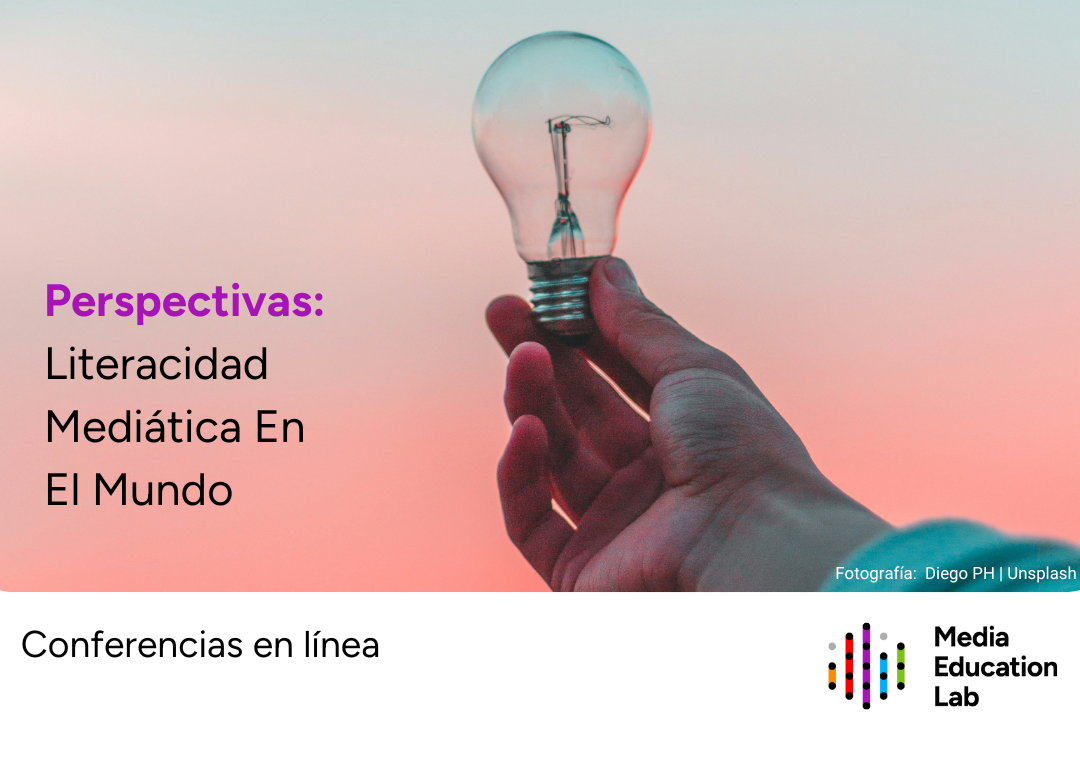
Perspectivas: Literacidad (alfabetización) Mediática en el Mundo
Perspectivas: Literacidad (Alfabetización) Mediática Alrededor del MundoTe damos la bienvenida a la primera serie de webinars en español organizada por el Laboratorio de Educación Mediática, Media Education Lab por su nombre en inglés. Nuestra organización se dedica a promover la educación para la alfabetización literaria mediante la investigación académica, colaboración interdisciplinaria y…
Read More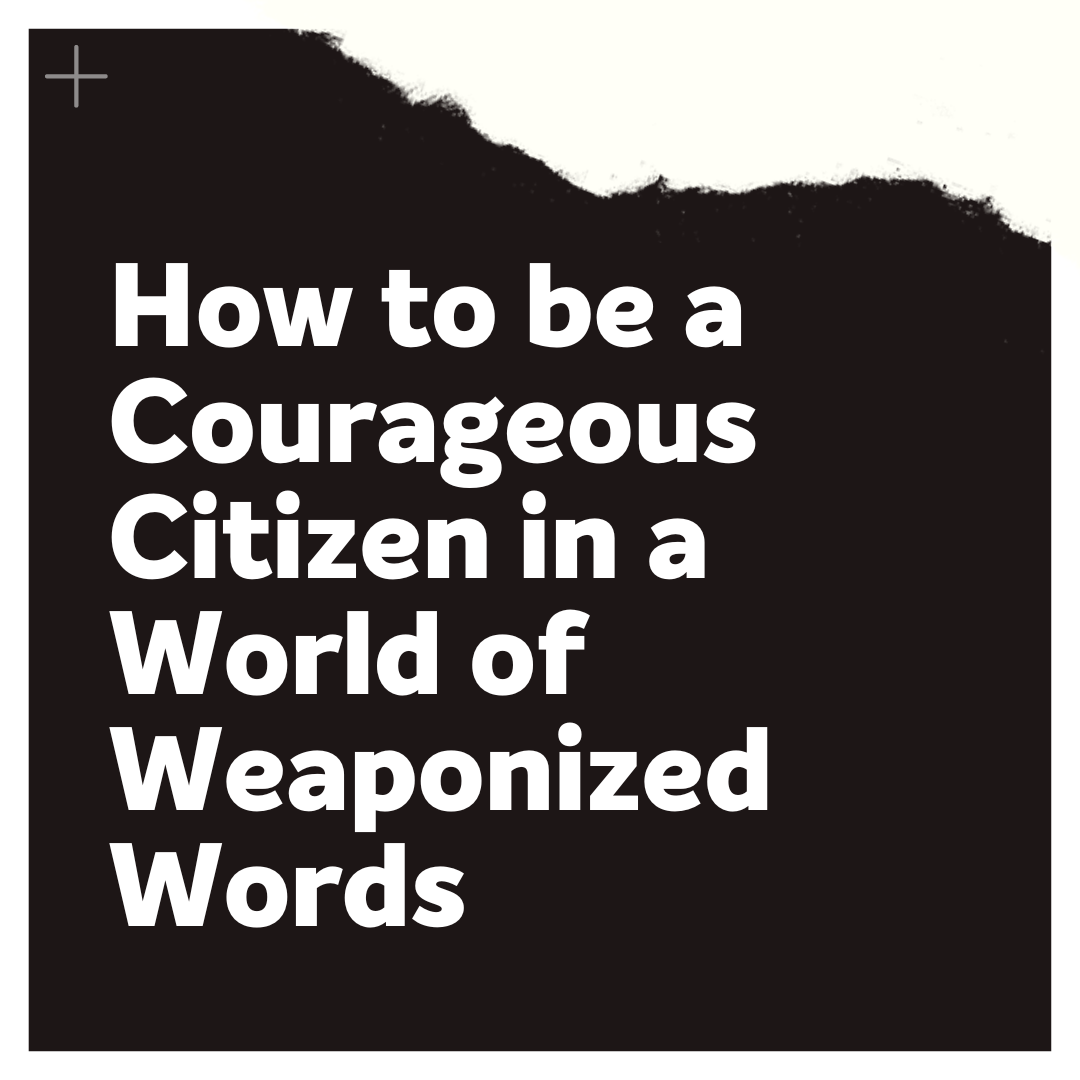
How to be a Courageous Citizen in a World of Weaponized Words
DATE: Mar 12, 2024 TIME: 9:00 - 9:30 AM Eastern Time (US and CanadaLOCATION:…
Read More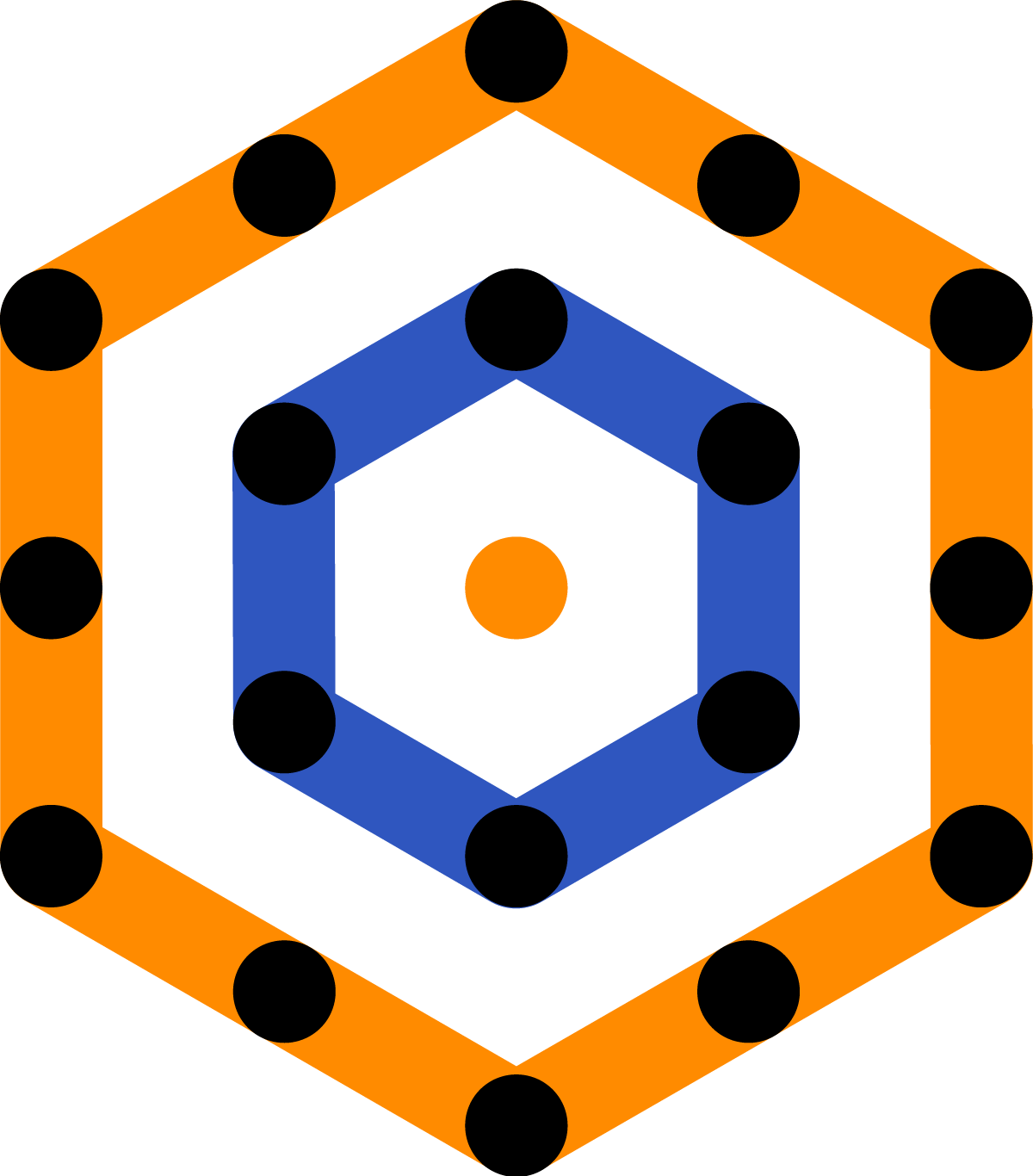
MediaEd Forum
Join us for the 17th MediaEd Forum!We've changed the name of the Northeast Media Literacy Conference (now in its 17th year) to reflect the growing global diversity of our online knowledge community!Conference Theme: Confronting the ChallengesFriday & Saturday, January 12-13, 2024 ONLINE VIA ZOOM…
Read More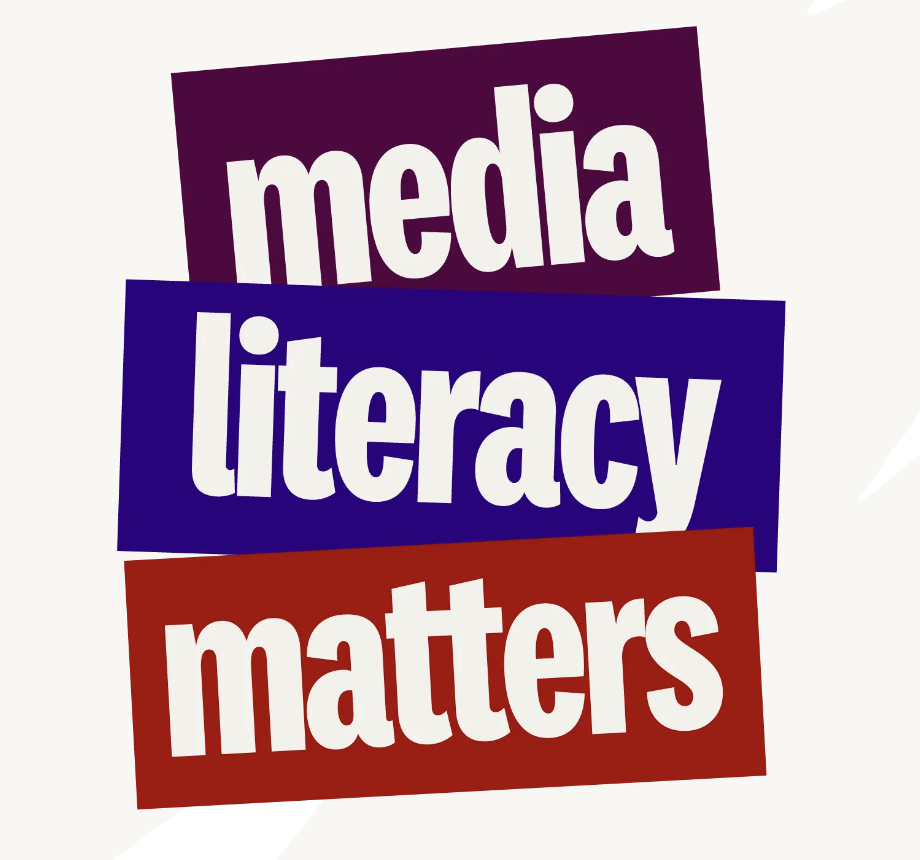
Media Literacy Matters
Renee Hobbs is thrilled to be a featured presenter at the European Digital and Media Literacy Conference in Brussels, which puts the many faces of digital and media literacy in the European spotlight during the Belgian EU presidency. February 27 - March 1, 2024Brussels, BelgiumThe conference is focused on showcasing and exchanging initiatives, tools, projects and practices that can be integrated…
Read More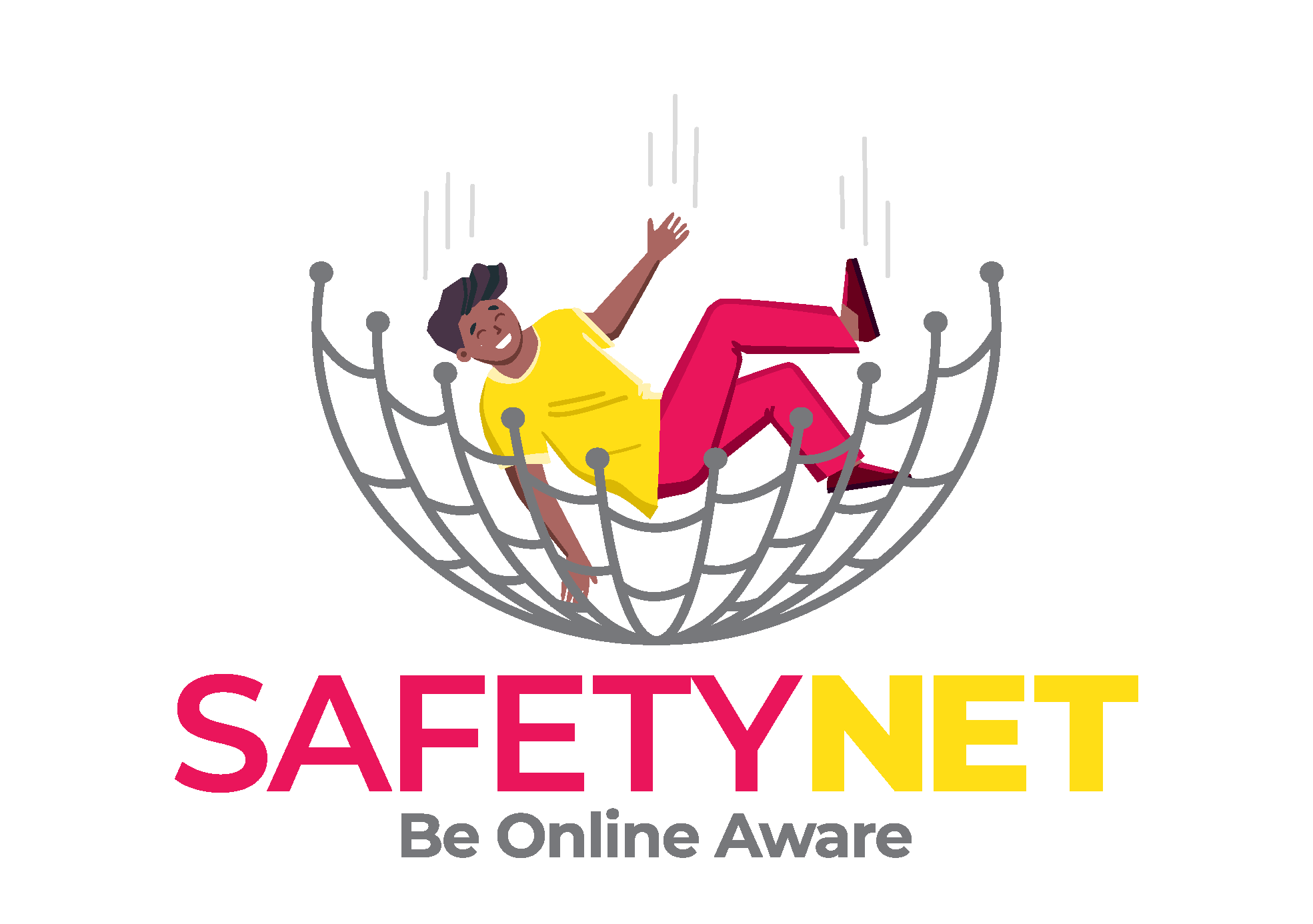
Autism & Hate: Media literacy and neurodivergence
In the UK over 50% of all teenagers at risk of terroristic activity are diagnosed autistic, the rise of the far-right and anti-immigrant sentiment post Brexit have grown considerably, this has combined with the fame of Andrew Tate and the Manosphere. I’d like to talk about how neurodivergent people are susceptible to this kind of messaging and how media literacy can be used as a tool to curb this…
Read More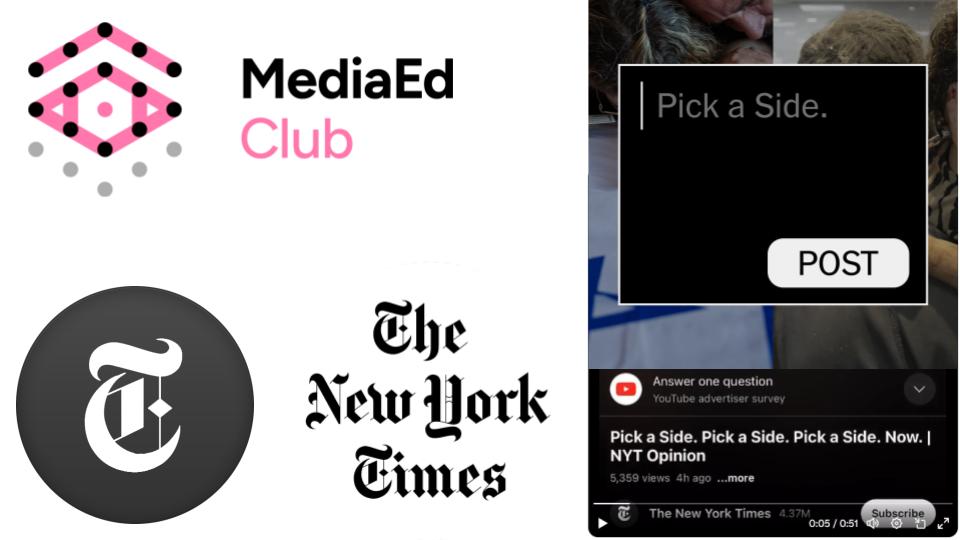
Media Club: Pick a Side. Pick a Side. Now.
In the December meeting of the Media Club, Renee Hobbs will model a lesson from the New York Times Learning Network in a viewing and discussion of "Pick a Side. Pick a Side. Now," a four-minute Opinion video that explores the role of social media in the current…
Read More
Remembering the Legacy of Violent Extremism
The stories we tell about violent extremism shape our understanding of the past, present, and future. In this session, we use dialogue and discussion to reflect on the legacy of September 11, 2001 and the role of violent extremism in the 21st century. Come to listen with appreciation to the stories of others and share your thoughts and feelings on this day of remembrance. This event is open to…
Read More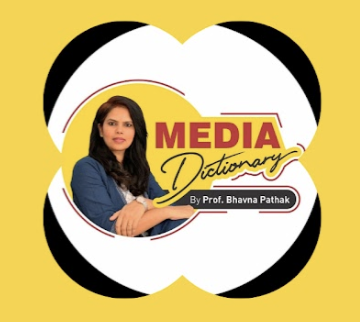
Introducing the Media Dictionary
Media Dictionary is an audiovisual, multilingual, and digital community media initiative that was initiated in 2021 with the primary objective of engaging with diverse communities across India on issues related to media literacy in local languages and dialects. More than 50 volunteers have posted more than 1,000 videos in 35 languages and…
Read More
Stay Curious, Not Furious
On February 28, the Media Education Lab at the University of Rhode Island will launch an exciting new media literacy initiative, Courageous RI. Funded by a $700,000 grant from the Department of Homeland Security, the effort includes three distinct phases that will foster community conversation, provide training and education, and engage youth, helping…
Read More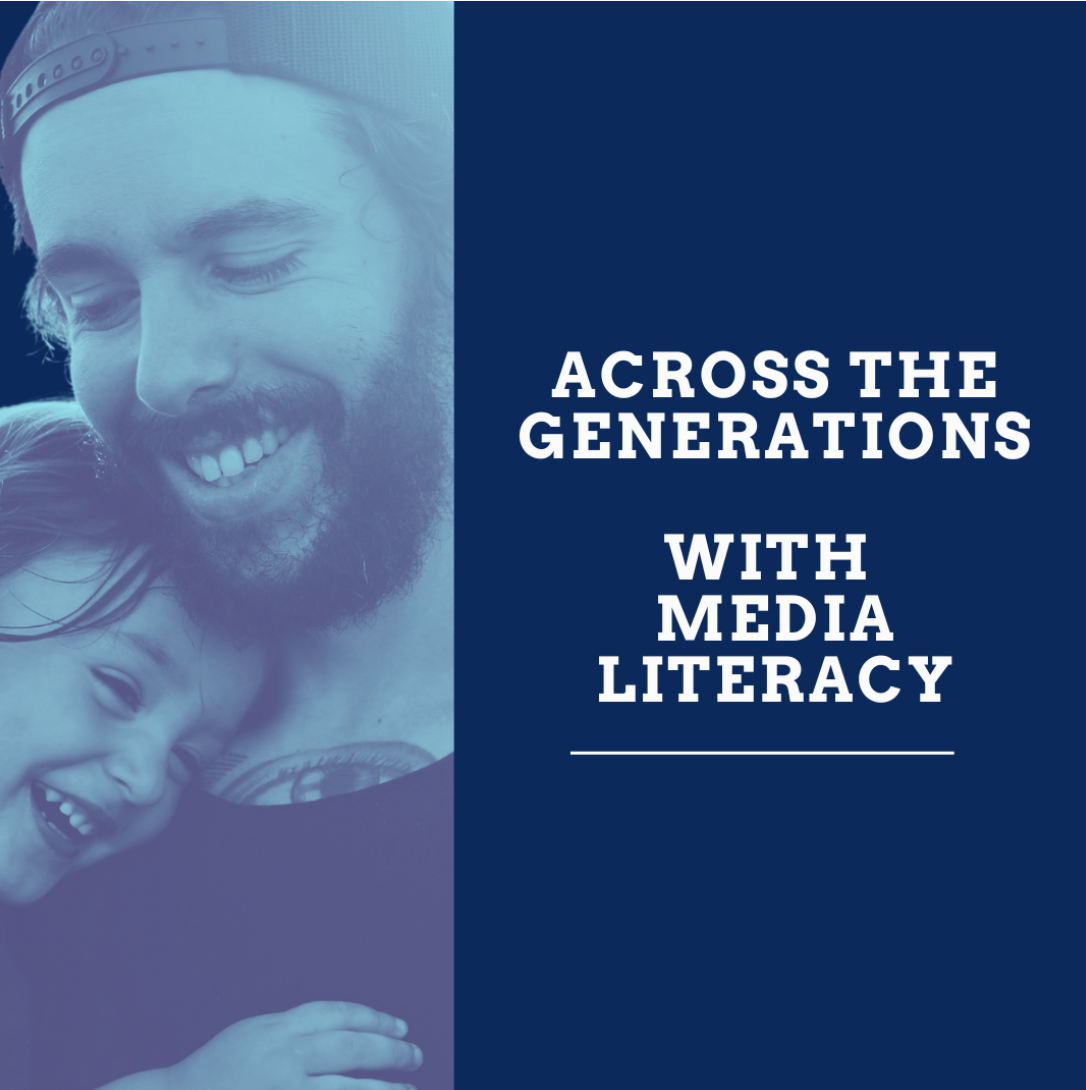
Media Literacy for Mid-Career Folks
7. MEDIA LITERACY FOR MID-CAREER FOLKS Featured Speaker: Renee Hobbs It's been claimed that older adults were responsible for a significant share of the so-called "fake news" crisis. How might digital skills and knowledge intersect with media literacy competencies for adults as they navigate a rapidly-changing media environment? Learn how mid-career folks manage the more-or-less…
Read More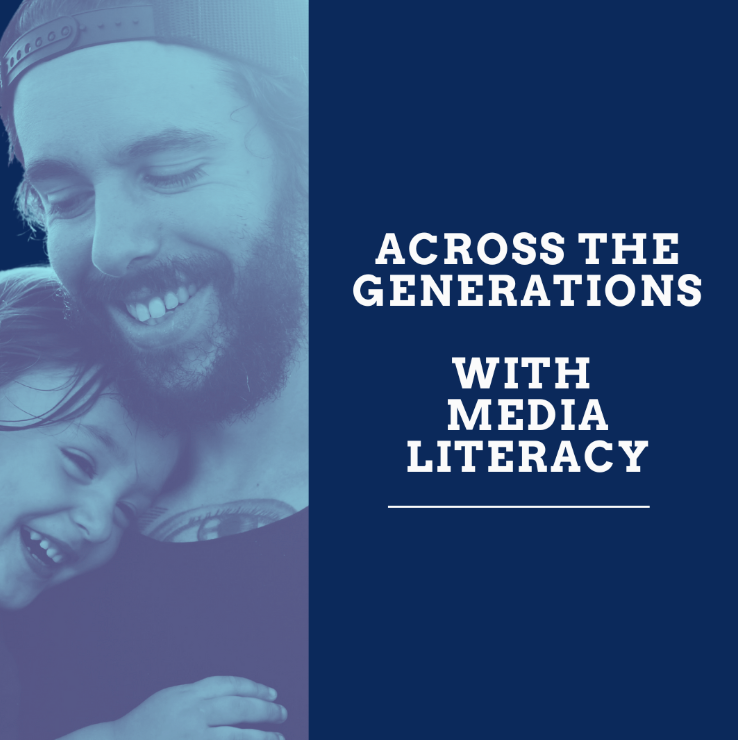
Across the Generations 4
4. MEDIA LITERACY IN HIGH SCHOOL: FOCUS ON CIVIC EDUCATION In high school, students learn to deconstruct media messages and benefit from access to scaffolding and frameworks to build their critical thinking skills. Students also are discovering their creative capacities as media makers and gain confidence in self-expression when they have authentic audiences who encounter their…
Read More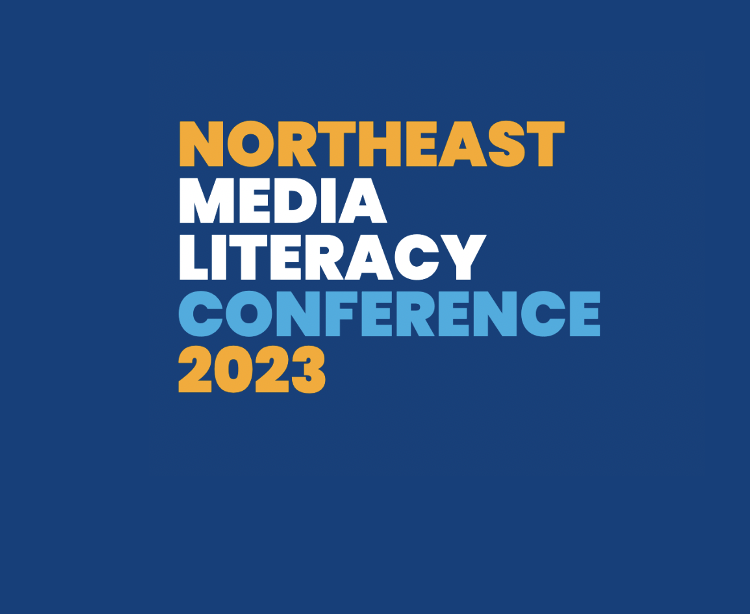
16th Northeast Media Literacy Conference
On January 13 - 14, 2023, the media literacy community will gather for NMLC23, the 16th Annual Northeast Media Literacy Conference! This online conference is organized around the theme of RESISTING THE FRAME. DATE: January 13 - 14, 2023 TIME: LOCATION:…
Read More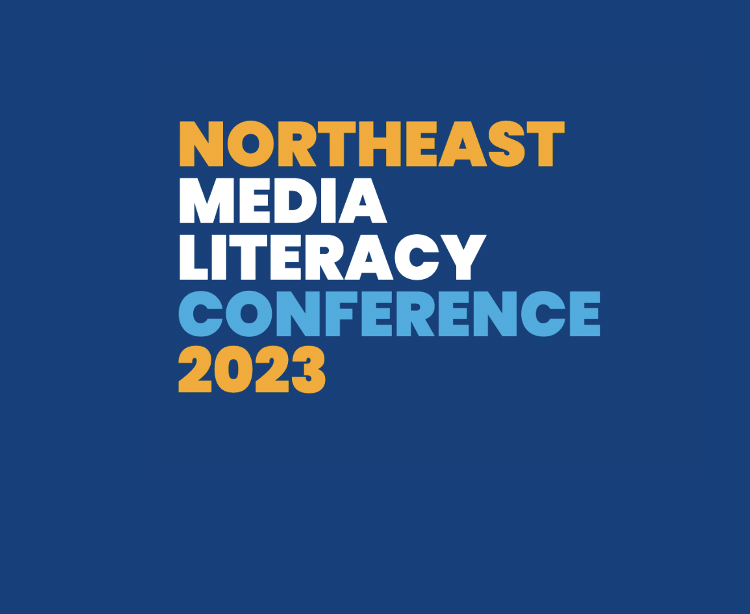
Previewing the 16th Northeast Media Literacy Conference
We're celebrating Media Literacy Week PREVIEW OF COMING ATTRACTIONS! On January 13 - 14, 2023, the media literacy community will gather for NMLC23, the 16th Annual Northeast Media Literacy Conference! This online conference is organized around the theme of RESISTING THE FRAME. Join us for a webinar where we share our planning…
Read More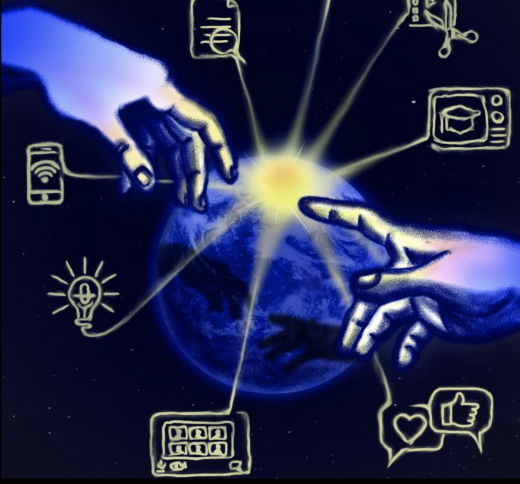
Post-Pandemic Futures for Media Education
Our team from the Media Education Lab is proud to announce the publication of The Routledge Handbook of Media Education Futures Post-Pandemic. Join us for an hour long webinar on the intercultural application of the human framework for the…
Read More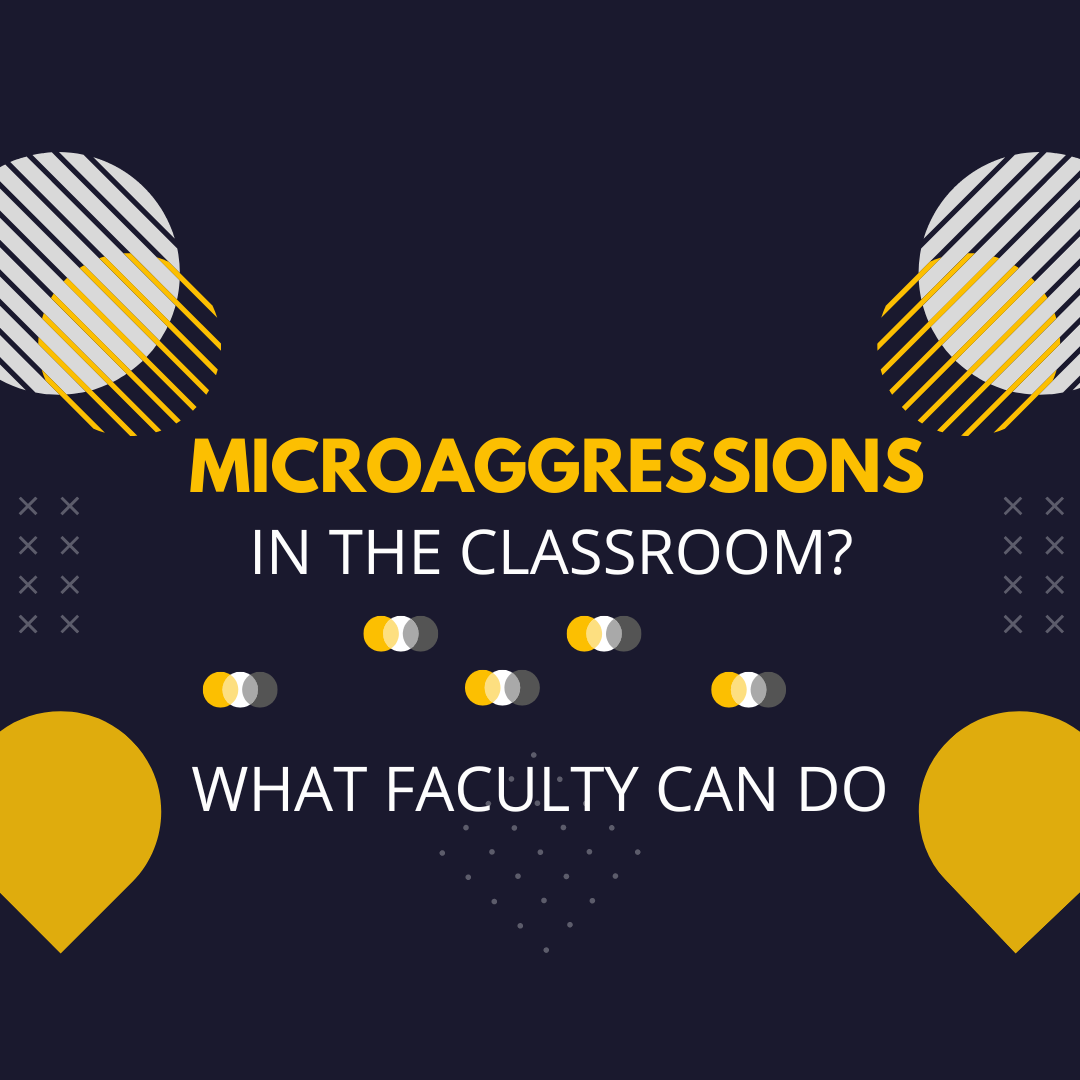
Microaggressions in the Classroom
DATE: Monday, August 29, 2022 TIME: 12 - 1 PM EST LOCATION. Online. Click here to register. Presenter: Zan Walker-Goncalves Writing Program Coordinator and Associate Professor Franklin Pierce University, Rindge, New Hampshire In this session we will Identify the impact of…
Read More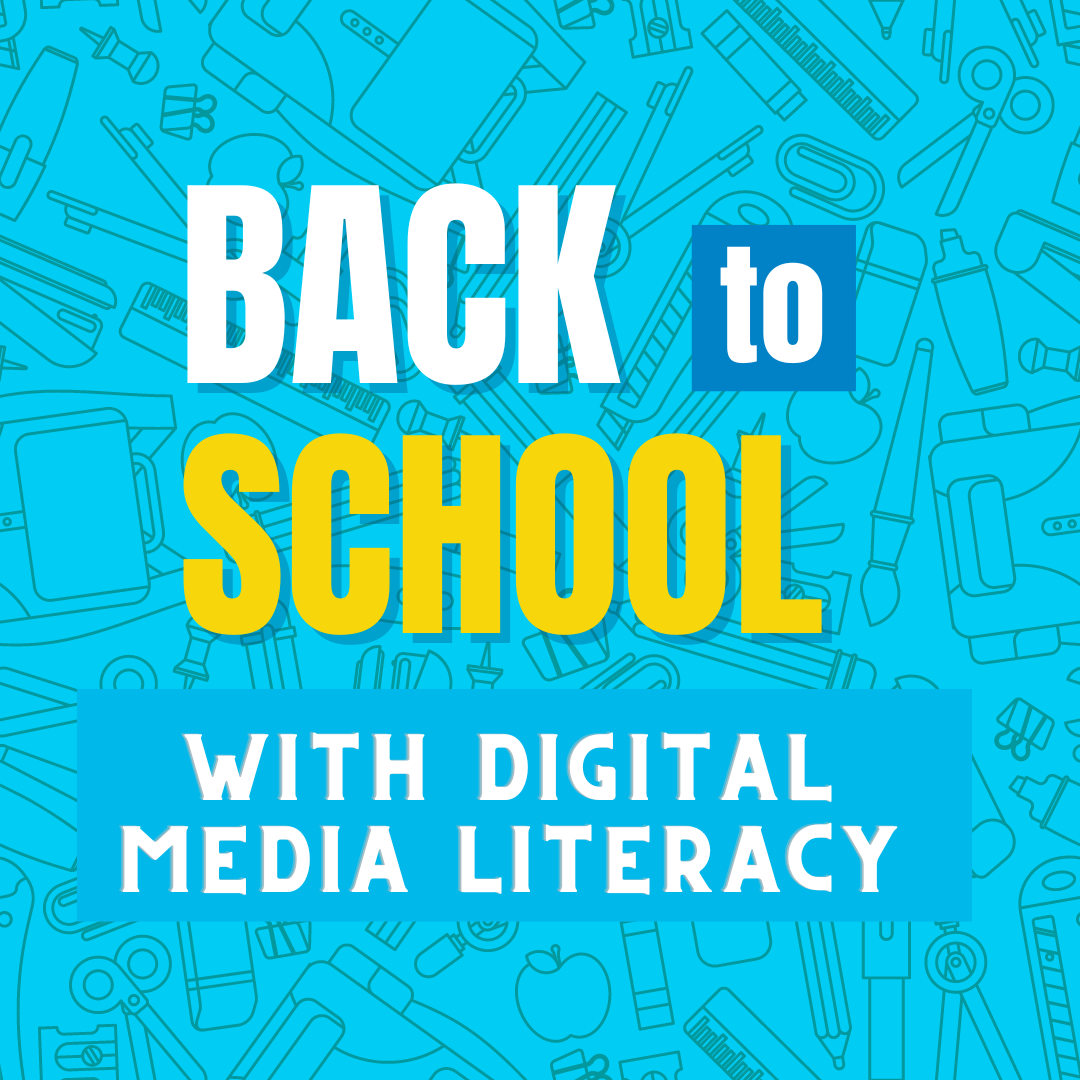
Back to School with Digital Media Literacy
Many friends of the Media Education Lab took time for learning this summer to imagine and plan possibilities for the year ahead. Join us to share your ideas and plans for the fall semester with the Media Education Lab community. This webinar is an informal discussion group where we talk about our hopes, fears, and dreams for the coming semester. There will be time for large and small-group…
Read More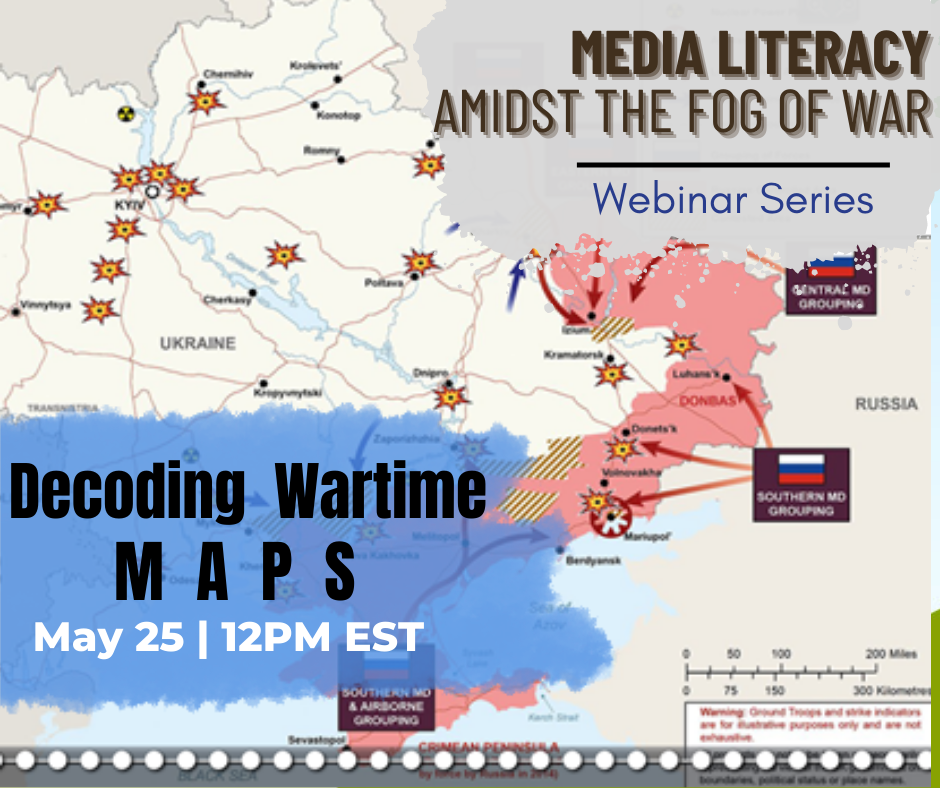
Media Literacy Amidst the Fog of War: Maps
Journalists and educators frequently use maps to convey information about armed conflicts. While often considered objective, maps, like other forms of media, are human constructions. Join us for an interactive session on investigating maps in times of conflict through a media literacy lens. We will explore maps as curated descriptions that can highlight as well as hide information about the…
Read More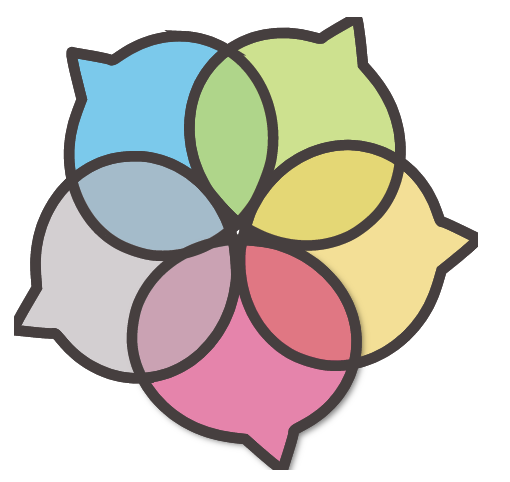
Medialogues Showcase: What We Learned Together
Medialogues on Propaganda is an online Professional Learning Community designed to advance the quality of media literacy education by developing the knowledge, confidence, and leadership skills of German, American and global teachers and teacher educators. DATE: Tuesday, April 26, 2022 TIME: 18:00 PM CET / 12:00 PM EST LOCATION. …
Read More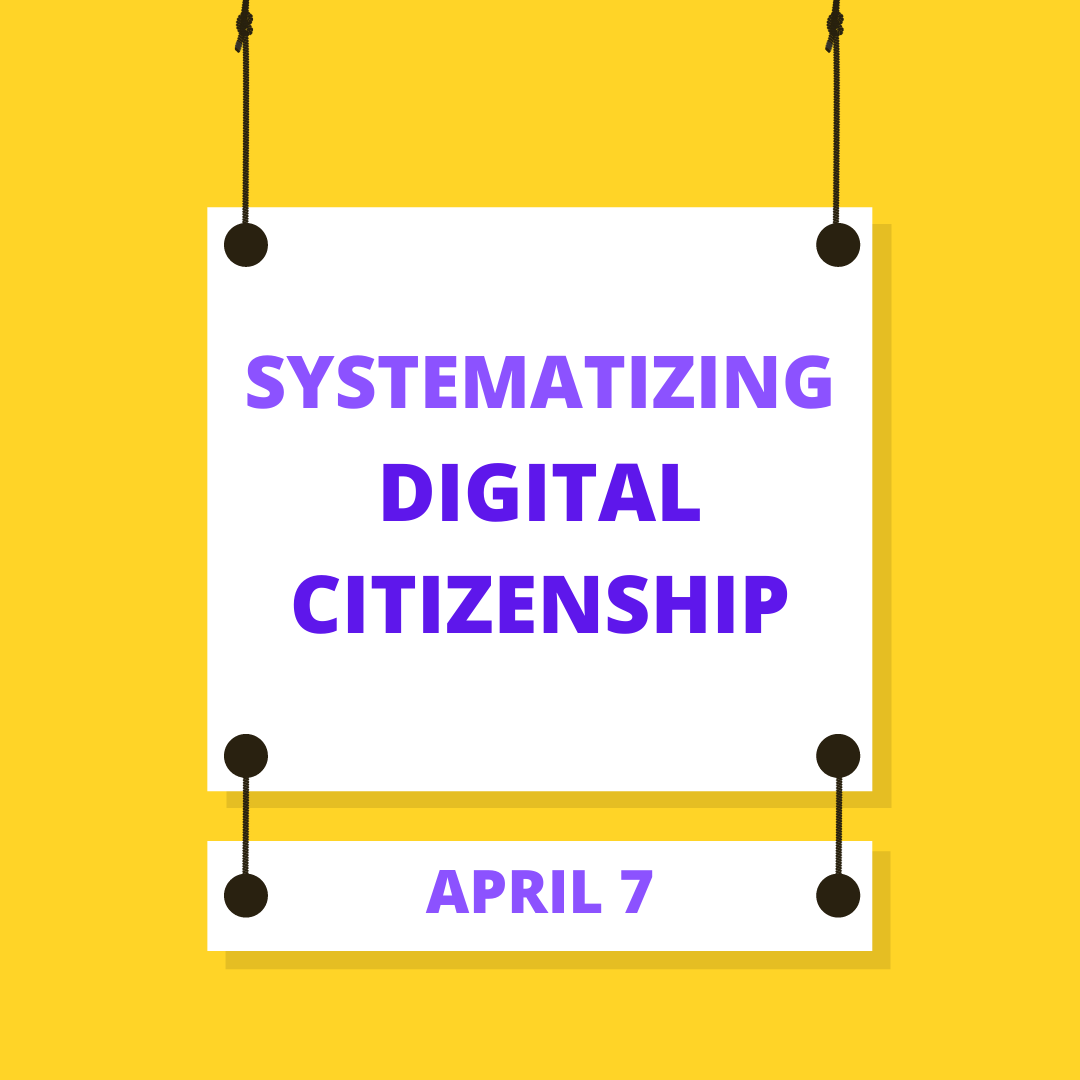
Systemizing Digital Citizenship Education
Systematizing Digital Citizenship Standards DATE: Thursday, April 7, 2022 TIME: 7 PM EST / 4 PM PST LOCATION: Online. Click here to register. FEATURED PRESENTERS: Kristen Mattson & LeeAnn Lindsey Digital citizenship includes the myriad of skills people need for full, civic…
Read More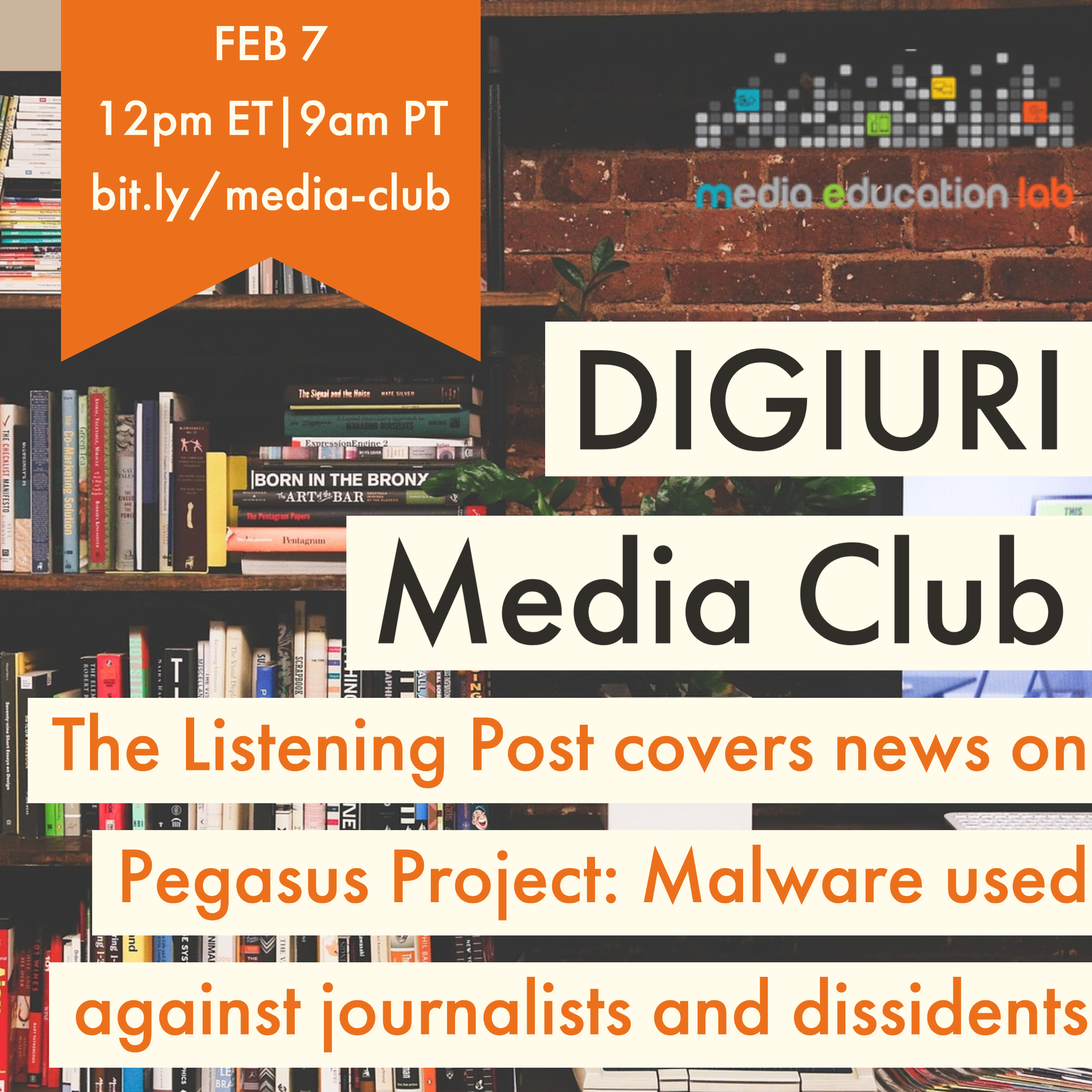
DigiURI Media Club | The Listening Post: Pegasus Project
If you don't already follow The Listening Post and it's weekly reports that "cover the way the news is covered," now is a great time to discover it. Last summer it covered the way news broke regarding the discover of Pegasus, a malware program used by governments to spy on journalists and dissidents. Join us February…
Read More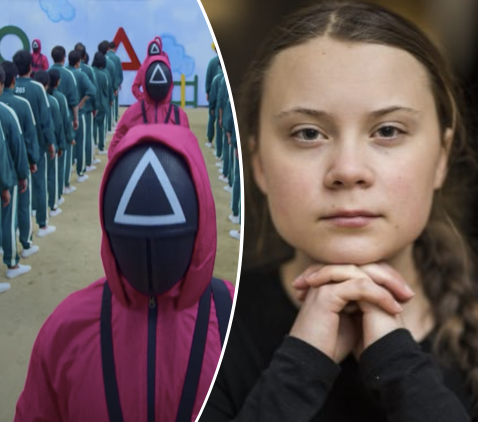
Exploring Controversial Issues in the Classroom
Exploring Controversial Issues in the Classroom Social justice media and technology in teacher education ATEE Spring Conference 2020/2021, Florence, ITALY, October 28 2021 Keynote Address By Renee Hobbs Educators are themselves citizens who express and share political views as part of their personal identity.…
Read More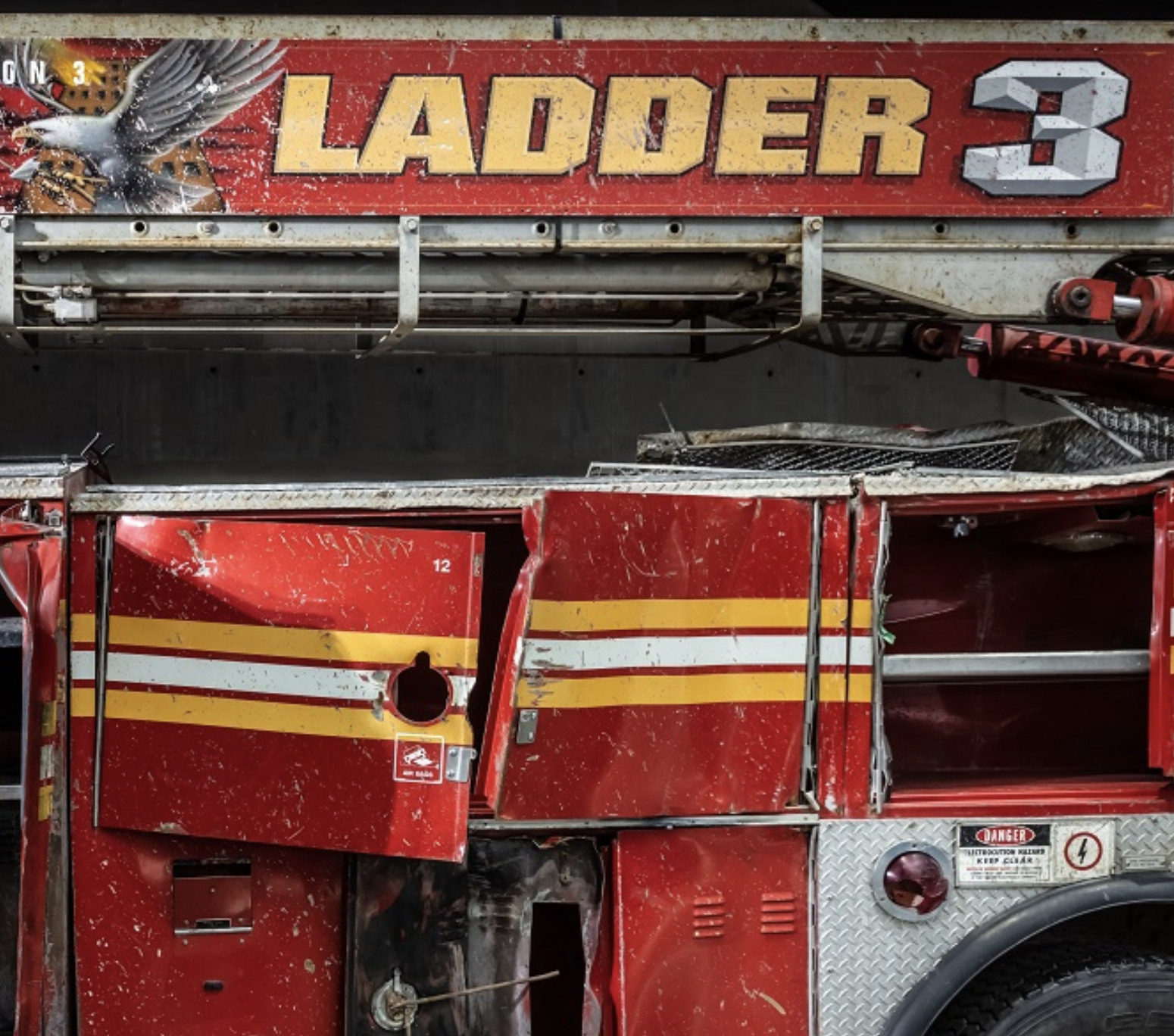
Analyzing the Visuals of 9/11 Anniversary
We honor the 20th anniversary of September 11th Analyzing the Visuals of 9/11 Anniversary Frank Baker and Renee Hobbs explore the visual representation of the 20th anniversary of September 11, 2001 to demonstrate how media literacy competencies can be seamlessly woven into the elementary, middle-school and high school classroom. Kara Clayton shares the …
Read More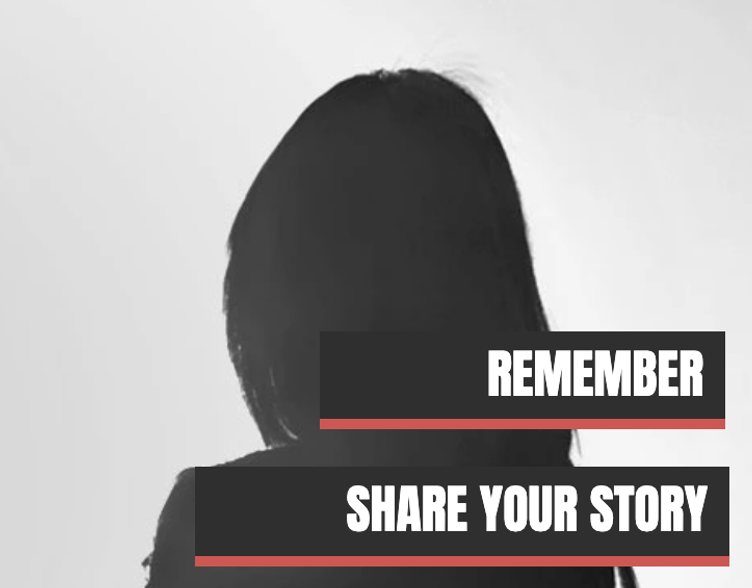
9/11 Through a Critical Literacy Lens
We honor the 20th anniversary of September 11th 9/11 Through a Critical Literacy Lens In this session for current teachers, future teachers, and teacher educators, we explore how to understand the importance of using memories as a form of oral history, especially about an important event in U.S. history like September 11, 2001. Learn how future teachers learned to use the…
Read More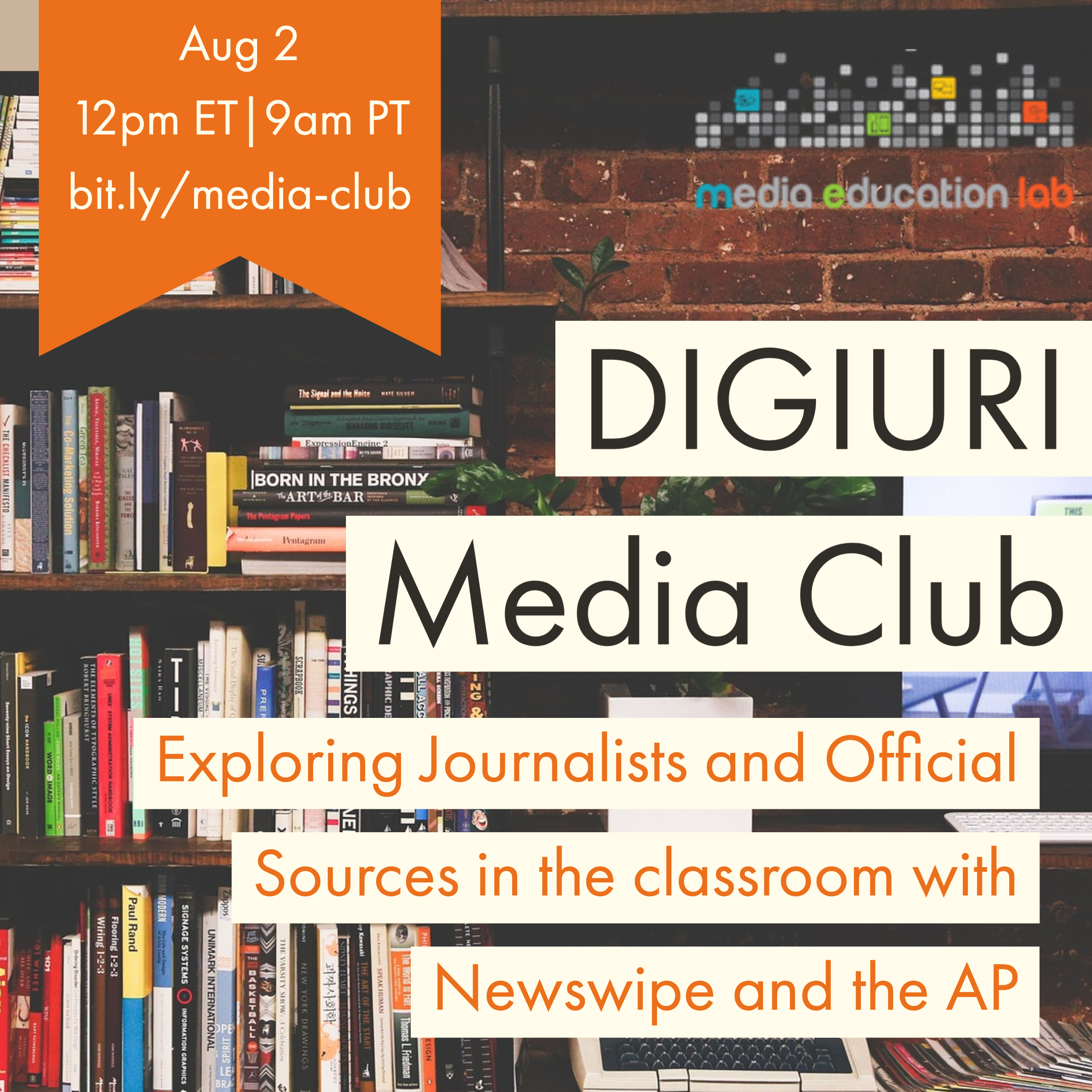
DigiURI Media Club | Exploring News Sources in the Classroom
In our next meeting we will explore using some digital content to teach news media literacy. Using Charlie Brooker’s Newswipe, (Season 2 Episode 4) an "Israeli military accused of using media to trick Hamas" (AP news, May 15, 2021) we…
Read More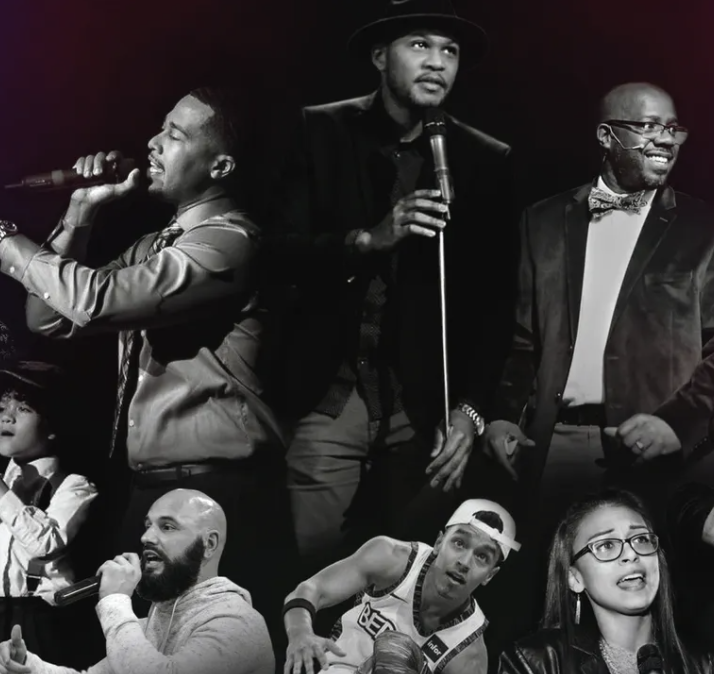
Those People
Join us for a screening and discussion! Three years in the making, “Those People” is an unforgettable new movie giving a behind-the-scenes look into the true stories behind the decade-long run of the New London Talent Show. DATE: Wednesday, July 14 TIME: 8 pm EST LOCATION. Online. Click here to register.…
Read More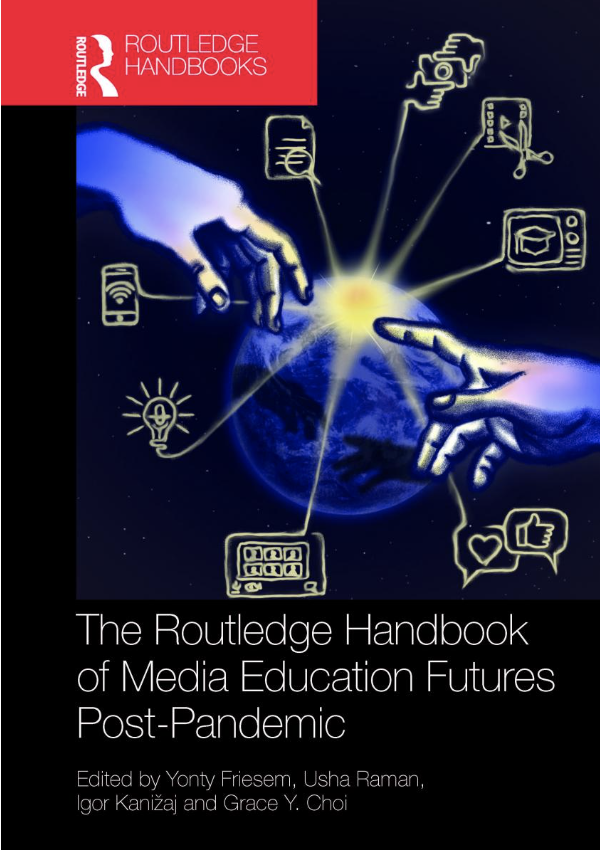
The Routledge Handbook of Media Education Futures Post-Pandemic.
Our team from the Media Education Lab is proud to announce the publication of The Routledge Handbook of Media Education Futures Post-Pandemic. This handbook showcases how educators and practitioners around the world adapted their routine media…
Read More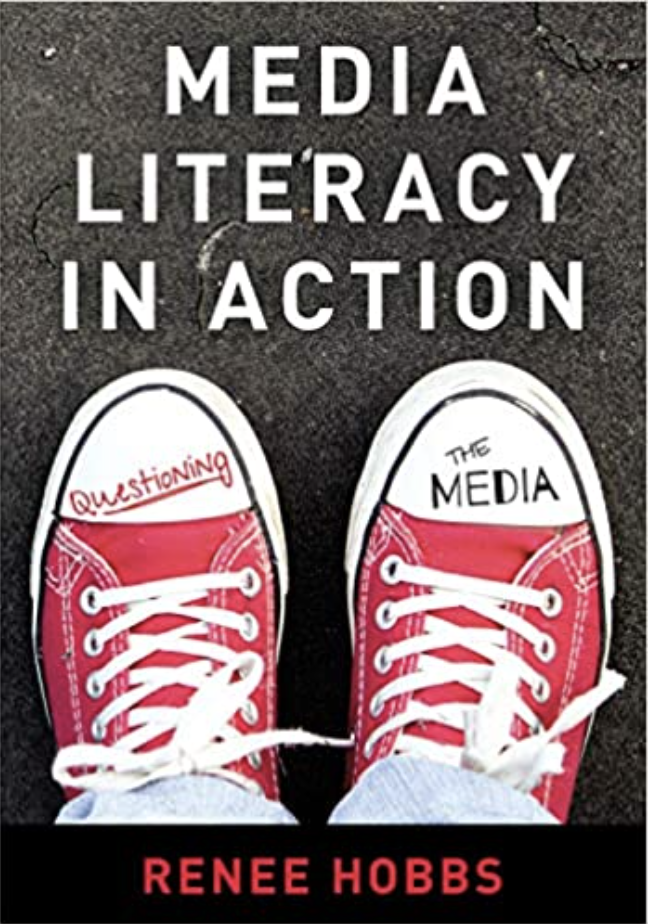
Media Literacy in Action
The blurring of entertainment, information, and persuasion is reshaping work, life, and citizenship. As a result, our relationship to media has never been so important nor so complex. By asking critical questions about what they watch, listen to, read, and use, students can be better prepared to be responsible communicators who can use a variety of formats and genres for self-expression and…
Read More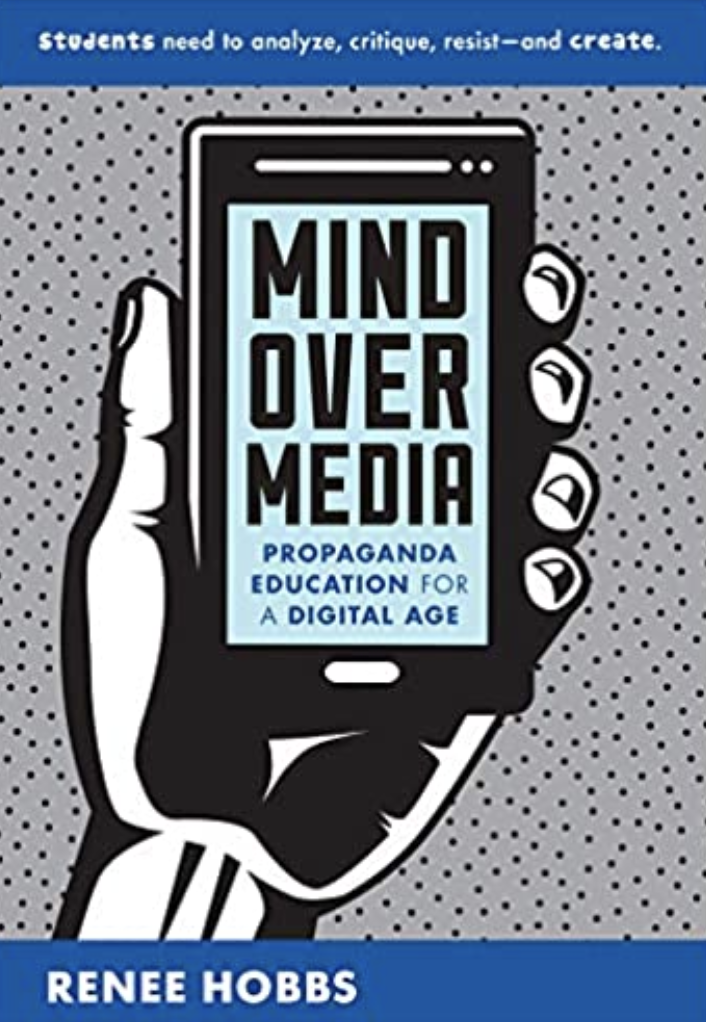
Mind Over Media: Propaganda Education for a Digital Age
Winner of the American Association of Publishers 2021 PROSE Award for Excellence in Social Sciences Media literacy educators have always…
Read More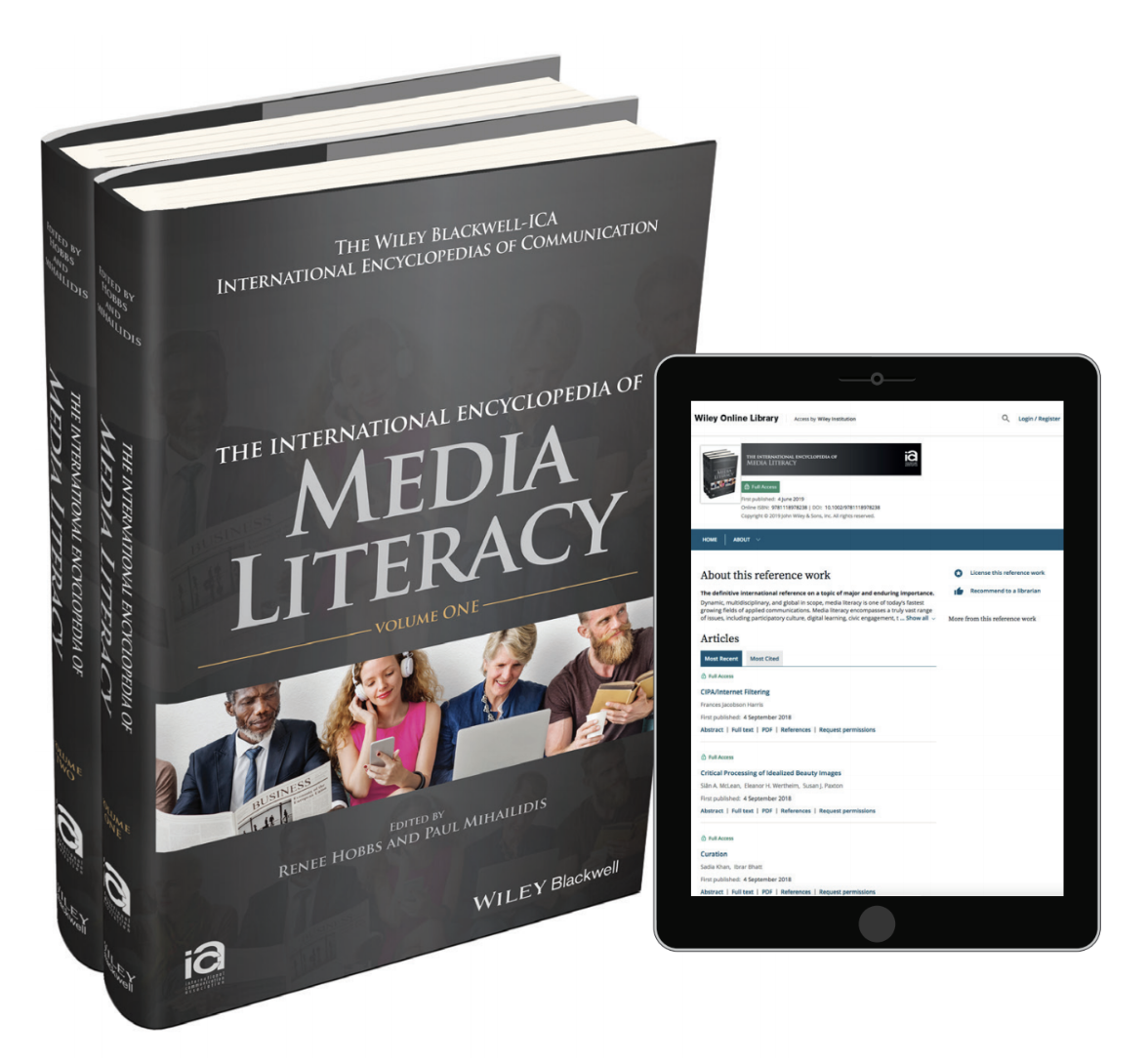
The International Encyclopedia of Media Literacy
The definitive international reference on a topic of major and enduring importance Dynamic, multidisciplinary, and global in scope, media literacy is one of today’s fastest growing fields of applied communications. Media literacy encompasses a truly vast range of issues, including participatory culture, digital learning, civic engagement, the impact of media on children, the…
Read More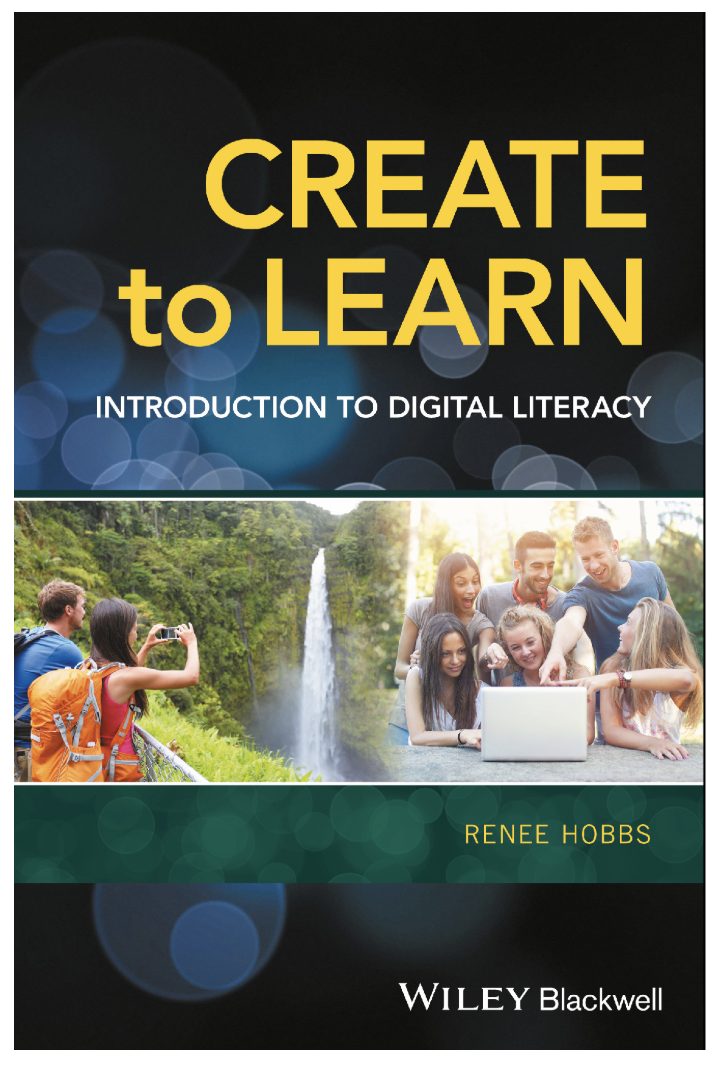
Create to Learn
Create to Learn helps learners create multimedia texts as they develop both critical thinking and communication skills. Written by Renee Hobbs, one of the foremost experts in media literacy, this book introduces a wide range of conceptual principles at the heart of multimedia composition and digital pedagogy. Its approach is useful for anyone who sees the profound educational value of creating…
Read More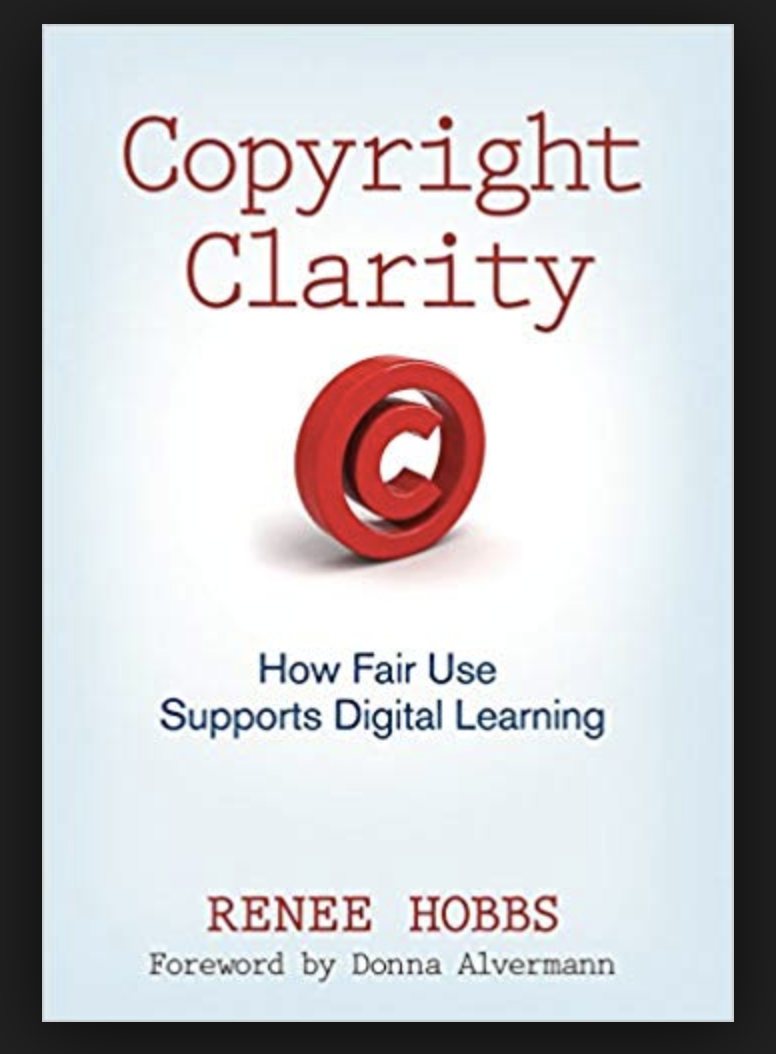
Copyright Clarity: How Fair Use Supports Digital Learning
Today, it's more important than ever before to understand the scope of your rights and responsibilities as a digital author. That's why Renee Hobbs wrote the book, Copyright Clarity: How Fair Use Supports Digital Learning.…
Read More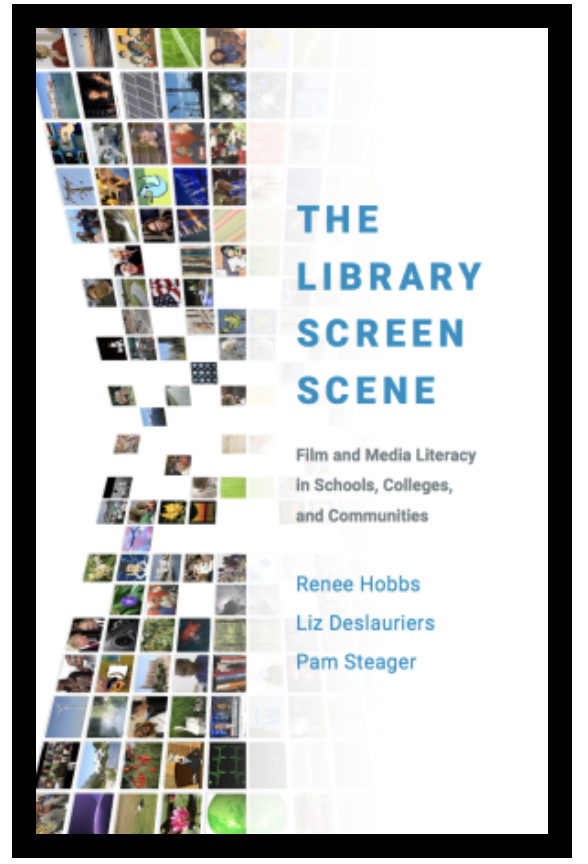
The Library Screen Scene
PUBLISHED JULY 15 from Oxford University Press order your copy now!In the past two decades, several U.S. states have explored ways to mainstream media literacy in school…
Read More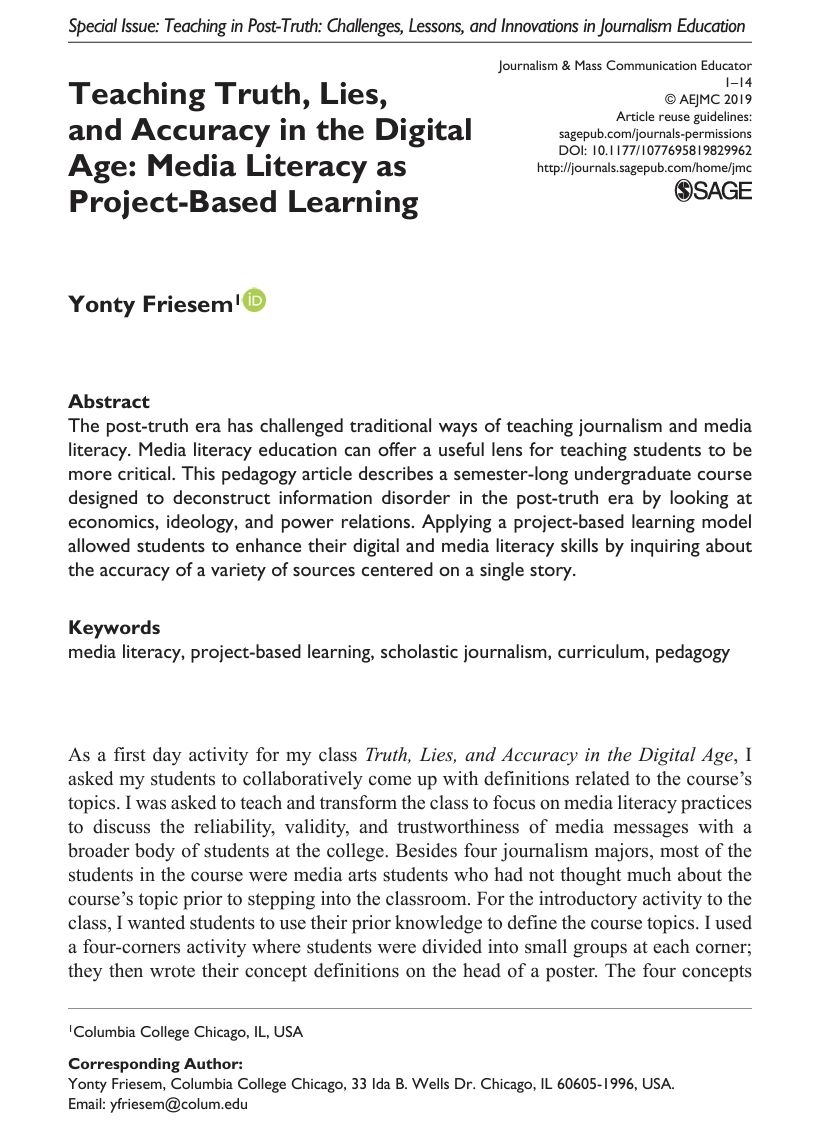
Teaching Truth, Lies, and Accuracy in the Digital Age
This pedagogy article describes a semester-long undergraduate course designed to deconstruct information disorder in the post-truth era by looking at economics, ideology, and power relations. Applying a project-based learning model allowed students to enhance their digital and media literacy skills by inquiring about the accuracy of a variety of sources centered on a single story, '…
Read More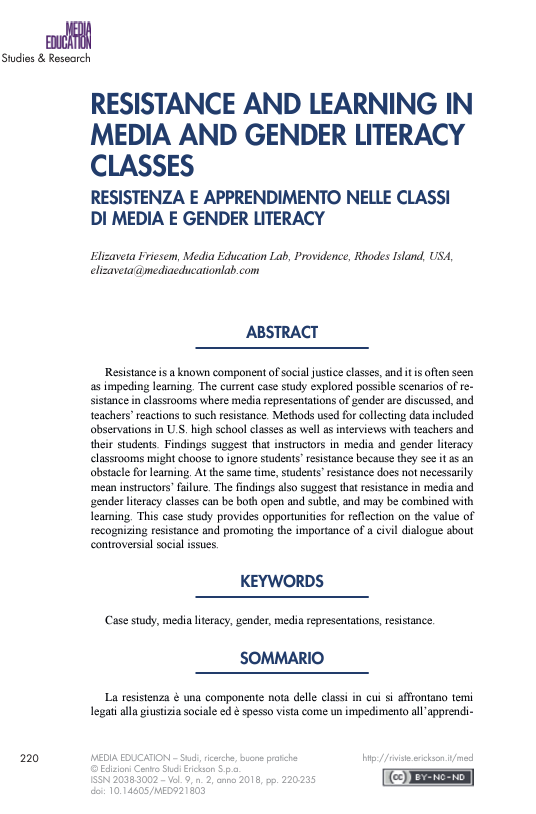
Resistance and Learning in Media & Gender Literacy Classes
Resistance is a known component of social justice classes, and it is often seen as impeding learning. The current case study explored possible scenarios of resistance in classrooms where media representations of gender are discussed, and teachers’ reactions to such resistance. Methods used for collecting data included observations in U.S. high school classes as well as interviews with teachers…
Read More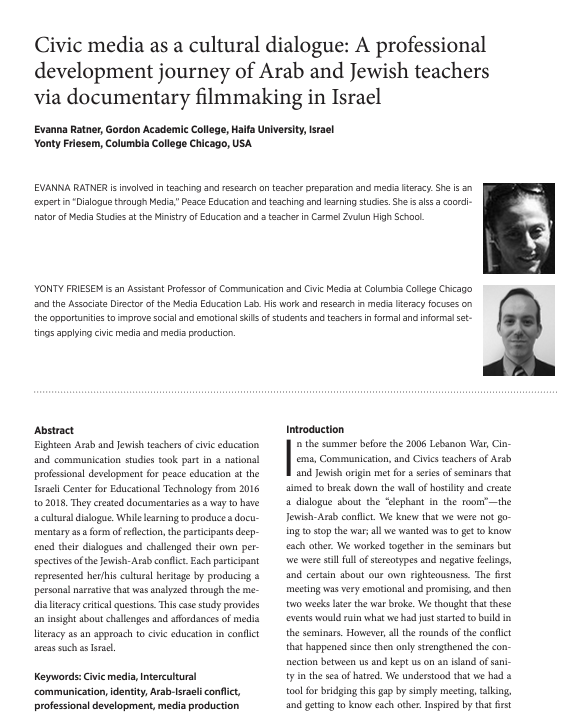
Civic media as a cultural dialogue: Arab and Jewish teachers & documentary filmmaking in Israel
Eighteen Arab and Jewish teachers of civic education and communication studies took part in a national professional development for peace education at the Israeli Center for Educational Technology from 2016 to 2018. They created documentaries as a way to have a cultural dialogue. While learning to produce a documentary as a form of reflection, the participants deepened their dialogues and…
Read More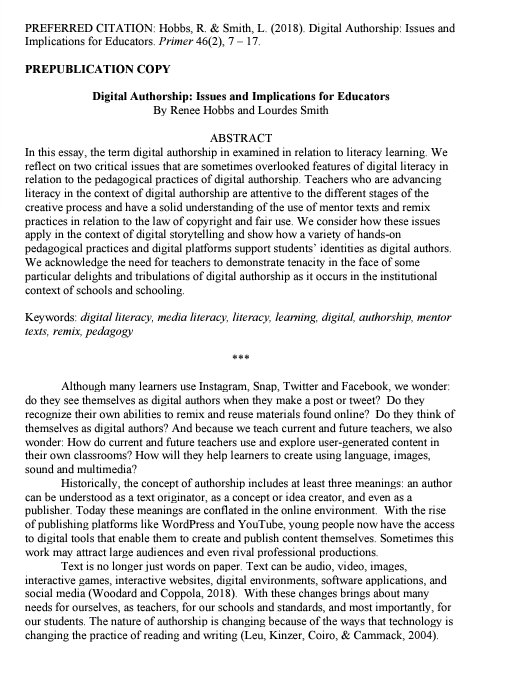
Digital Authorship: Issues and Implications for Educators
In this essay, the term digital authorship in examined in relation to literacy learning. We reflect on two critical issues that are sometimes overlooked features of digital literacy in relation to the pedagogical practices of digital authorship. Teachers who are advancing literacy in the context of digital authorship are attentive to the different stages of the creative process and have a solid…
Read More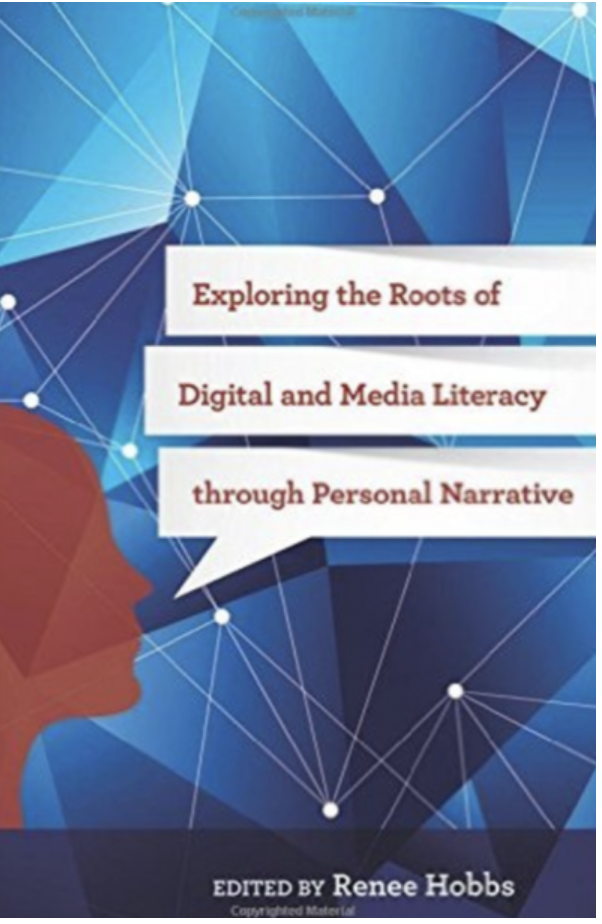
Exploring the Roots of Digital and Media Literacy through Personal Narrative
Explore the multidisciplinary nature of media literacy education It's been said that the lack of scholarship about the history of media literacy has been a source of some of the conflicts and debates among scholars and practitioners. Media literacy stands at the intersection of the fields of media studies and education, and these scholars have divergent perspectives on the past, present and…
Read More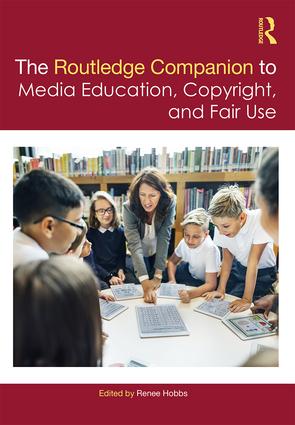
The Routledge Companion to Media Education, Copyright and Fair Use
The Routledge Companion to Media Education, Copyright and Fair Use Edited By Renee Hobbs Media educators rely on the ability to make use of copyrighted materials from mass media, digital media and popular cultlure for analysis and production activities. With chapters written by leading scholars and practitioners from the fields of media studies, education, writing and rhetoric, law and…
Read More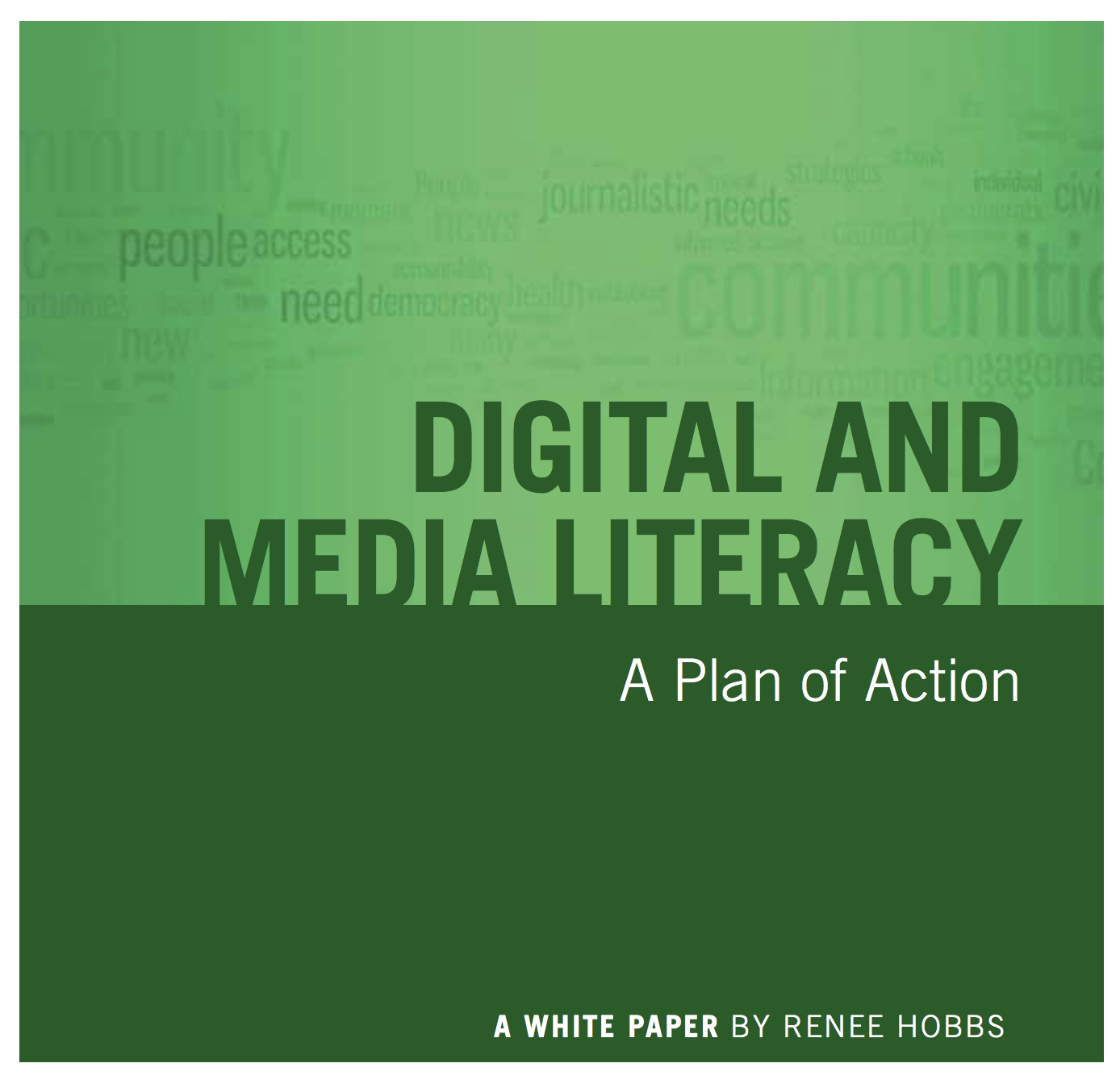
Digital and Media Literacy: A Plan of Action
Digital and Media Literacy: A Plan of Action, a policy paper by Renee Hobbs, was commissioned by the Knight Foundation, building upon recommendations that digital and media literacy be strengthened in order to get citizens more engaged in their…
Read More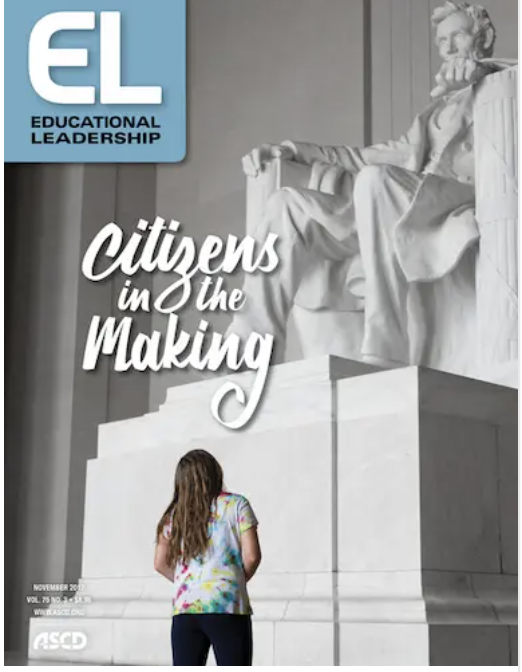
Teaching and Learning in a Post-Truth World
It's time for schools to upgrade and reinvest in media literacy lessons. Renee Hobbs, director of the Media Education Lab at the Harrington School of Communication and Media at the University of Rhode Island, cautions us to stop using the term "fake news" with students and be more precise about the types of disinformation prevalent in content today, from hoaxes and satire to clickbait. In this…
Read More
Courageous Conversations
Bring media literacy and active listening to middle school, high school, college and adult learnersWith support from talented educators and experts who participated in the program, we’re proud to bring you the Courageous Conversations Curriculum. This book contains a collection of materials to help you bring media literacy and active listening into your middle school, high school or college…
Read More
Copyright
It's more important than ever before to understand the scope of your rights and responsibilities as a digital author. That's why Renee Hobbs wrote 2 books about copyright! Copyright Clarity: How Fair Use Supports Digital…
Read More
Media Literacy in Action
The blurring of entertainment, information, and persuasion is reshaping work, life, and citizenship. As a result, our relationship to media has never been so important nor so complex. By asking critical questions about what they watch, listen to, read, and use, students can be better prepared to be responsible communicators who can use a variety of formats and genres for self-expression and…
Read More
Mind Over Media: Analyzing Contemporary Propaganda
www.mindovermedia.us Mind Over Media is the winner of the 2021 PROSE Awards for Social Sciences by the American Association of Publishers, the membership organization of the scholarly and academic press. ORDER THE BOOK!…
Read More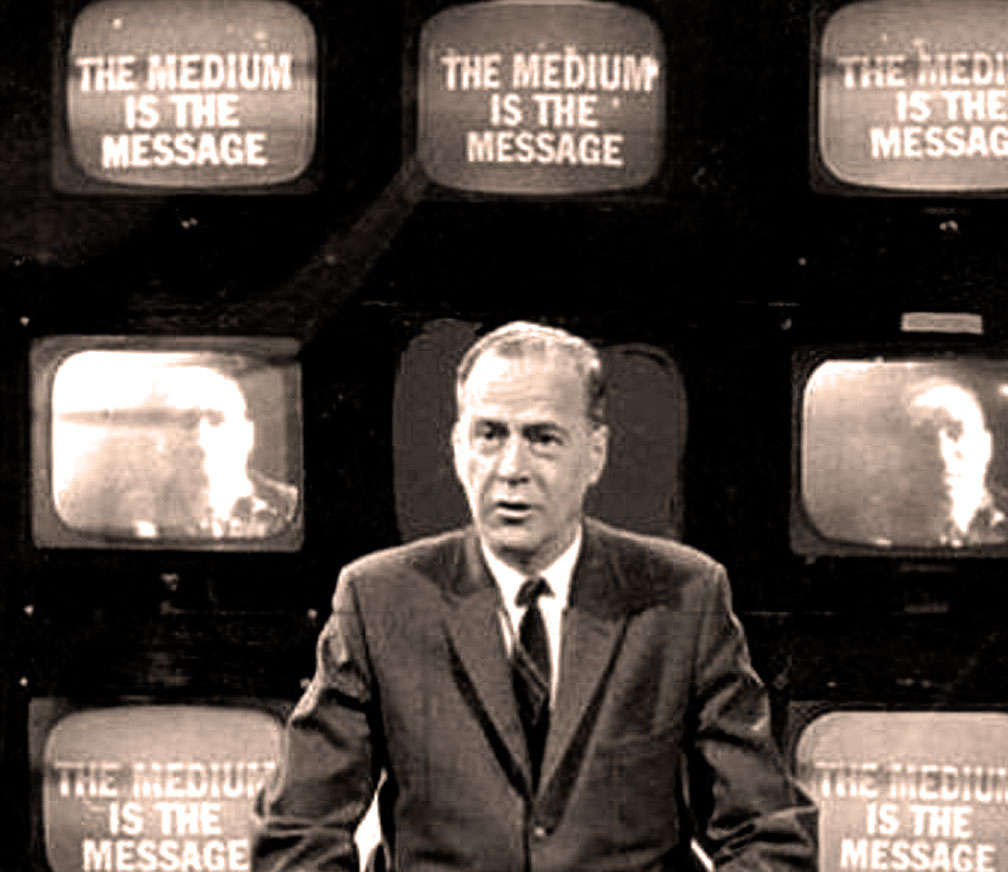
Grandparents of Media Literacy
The Grandparents of Media Literacy is the website companion to a book edited by Renee Hobbs entitled Exploring the Roots of Digital and Media Literacy through Personal Narrative, which was published by Temple University Press in 2016. Read the book online. The Grandparents of…
Read More
Media Literacy Smartphone
Learn how to use the Media Literacy Smartphone with learners of all ages! Download the free learning guide to bring the power of media literacy analysis to your learners!These easy-to-use cards, shaped exactly…
Read More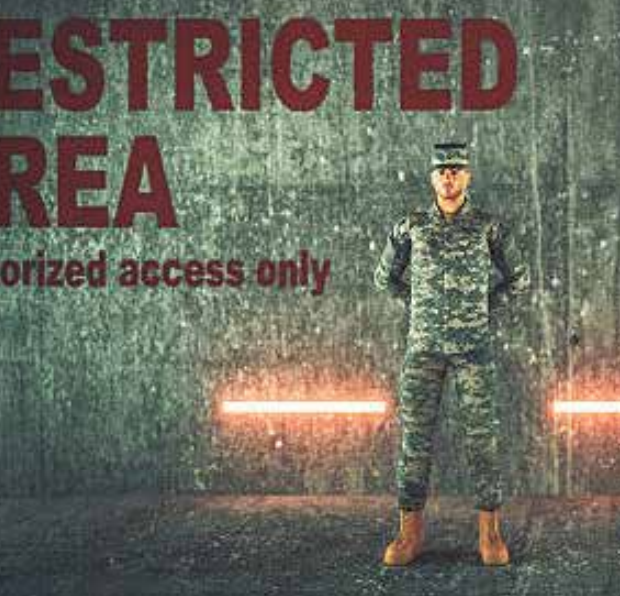
Teach the Conspiracies
Workshop: Teach the Conspiracies Read and Annotate the PDF: Teach the Conspiracies by Renee Hobbs Flipgrid: Explore a Conspiracy Theory and Comment View: Can You Win an Argument with…
Read More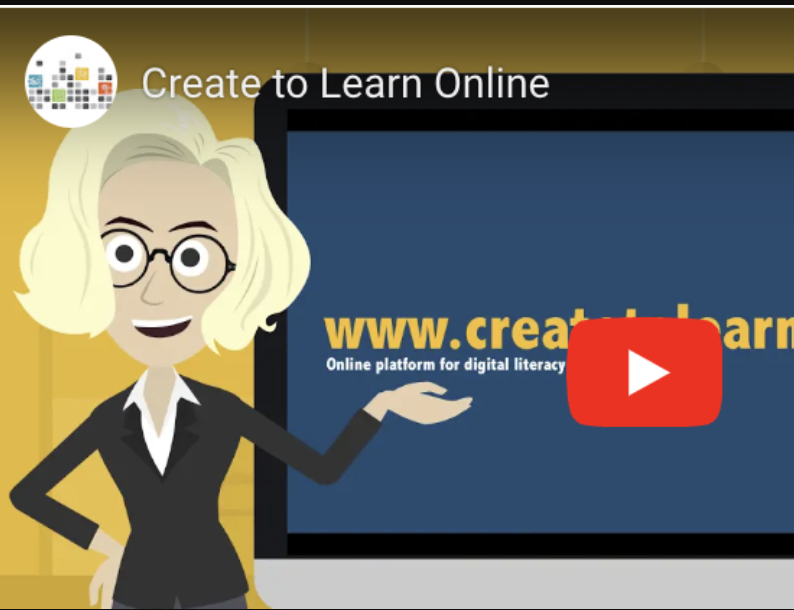
Create to Learn Online
When students create media to represent their learning, they really learn! At the Create to Learn Online website, you can access more than a dozen free and low-cost digital tools for creating podcasts, videos, infographics, animations, videos, remix and more. Plus, you can view and upload multimedia work samples and access study notes and PPT slides…
Read More
Assignment: Media Literacy
After 25 years, it's still the most popular resource from the Media Education Lab!This is the 18-unit curriculum created by Renee Hobbs and colleagues in 1998! You will be pleased to see how timeless and relevant these lessons continue to be!You can download the PDF files with lesson plans and reproducibles for each unit and use the videos to teach media literacy in conjunction with social…
Read More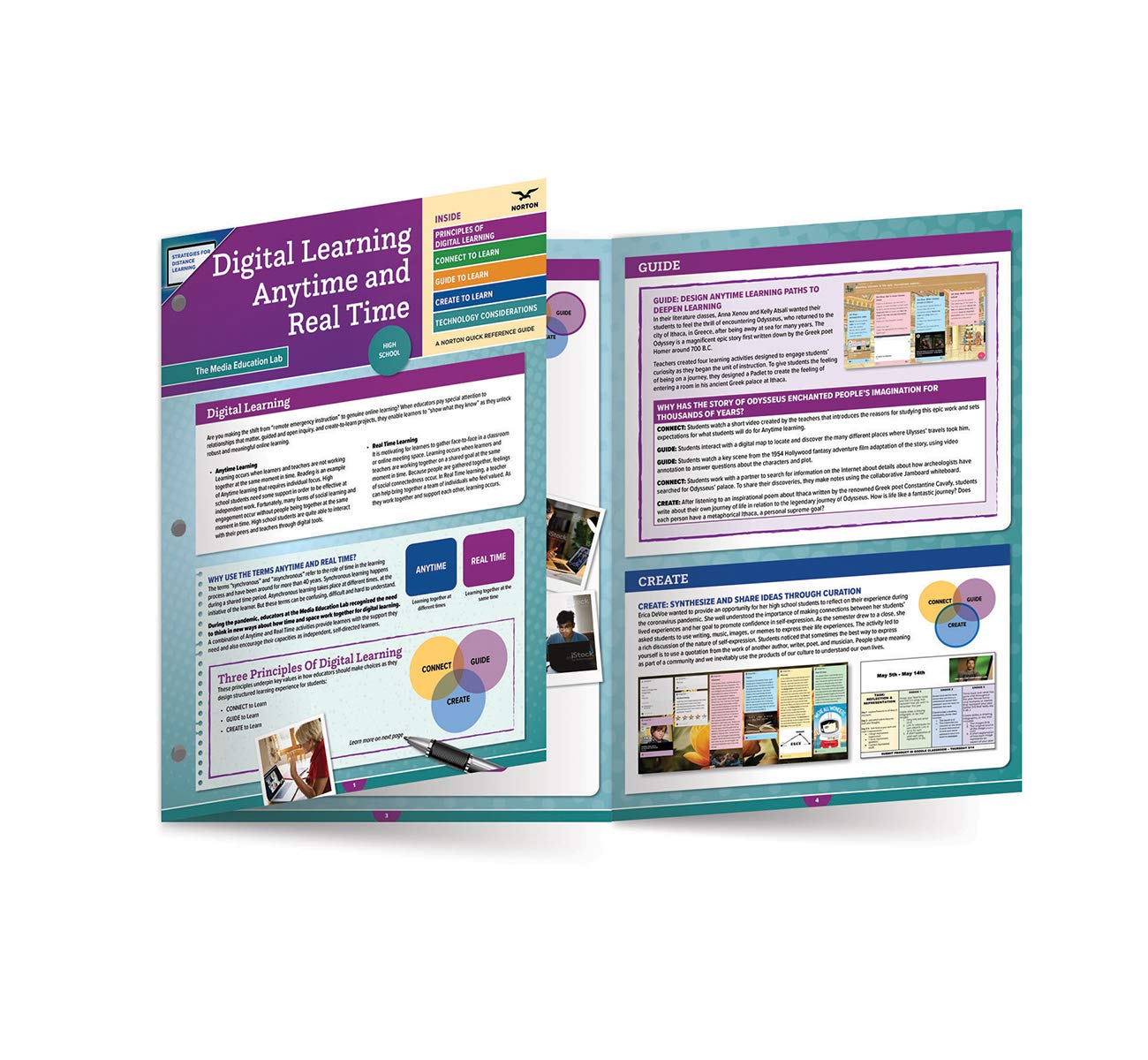
Digital Learning Anytime and Real Time
Since the start of the pandemic, educators all over the world have been learning on the fly how to use the power of digital texts, tools, and technologies for “remote emergency instruction.” As teachers quickly discovered, conducting nearly nonstop Zoom meetings, in an effort to replicate in-classroom learning in an online environment, is both ineffective and exhausting. In this series of…
Read More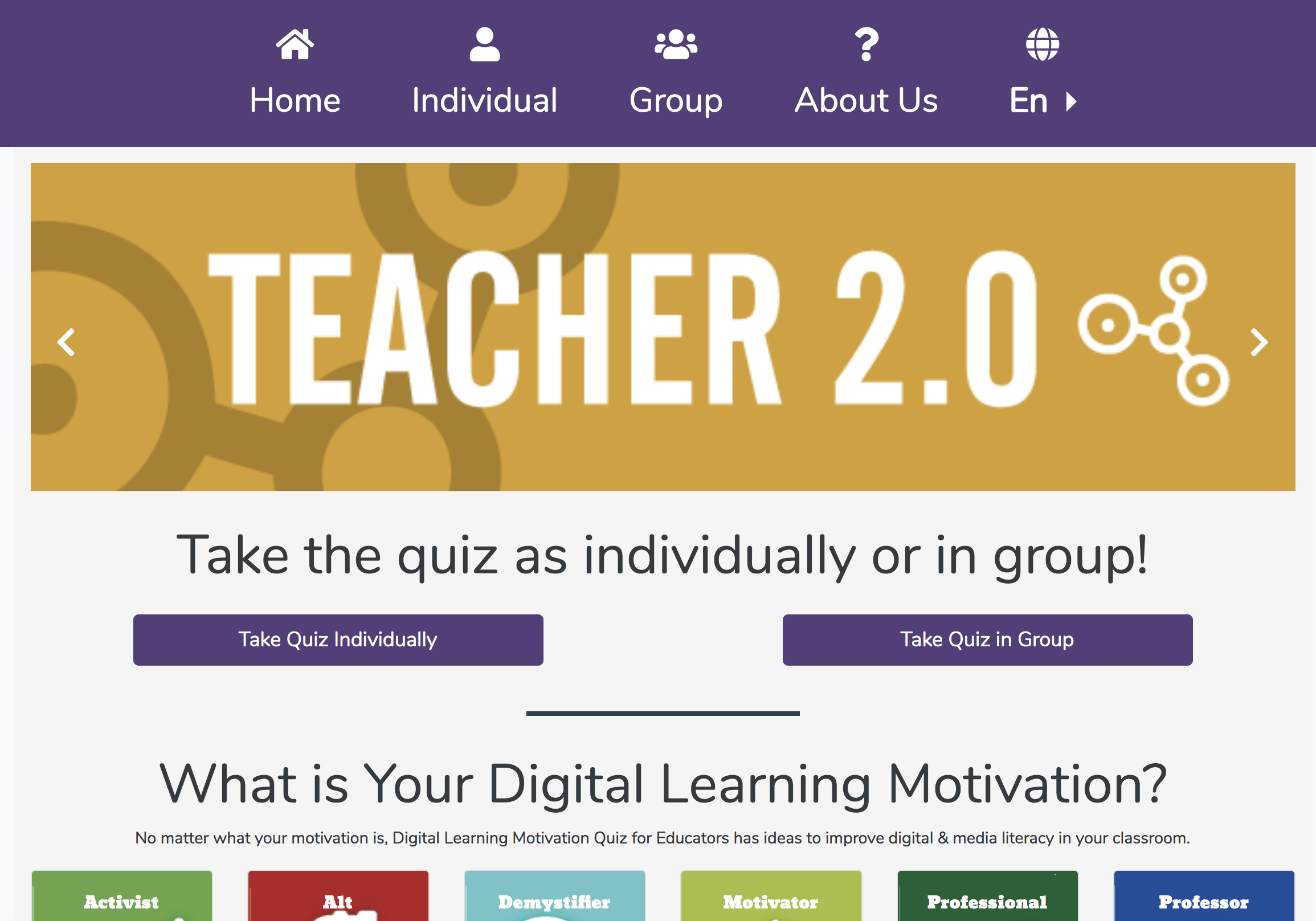
Set Your Motivation
The Digital Learning Horoscope is a 48-item Likert scale instrument that assesses teachers’ perception of the value and relevance of six conceptual themes, namely: attitudes toward technology tools, genres and formats; message content and quality; community connectedness; texts and audiences; media systems; and learner-centered focus.Visit the Set Your…
Read More
Memories of September 11, 2001
The series of four coordinated terrorist attacks by the Islamic terrorist group al-Qaeda on the U.S. on Tuesday, September 11, 2001 continue to deeply affect U.S. identity and politics. Through a digital academic forum, learners gather information and compare observations of memories of September 11, 2001 to reflect upon the variety of experiences and interpretations of this important historical…
Read More
Nonviolent Communication for Talking about Coronavirus
NEW FROM THE MEDIA EDUCATION LAB! This helpful guide, created by Elizaveta Friesem, helps learners to practice talking about their feelings and needs in ways that promote compassion, empathy and genuine understanding. The work builds upon the work of Marshall Rosenberg's 2005 book, Nonviolent Communication: A Language of Life.…
Read More
Internet: Indispensable or Evil?
OverviewIn these four lessons, students use the episode Adam Ruins the Internet (Season 2, Episode 12) as a starting point to discuss the role of the Internet in modern culture and learn about media policies that shape people’s online…
Read More
Digital and Media Literacy: A Process of Learning
Digital and Media Literacy: A Learning Process …
Read More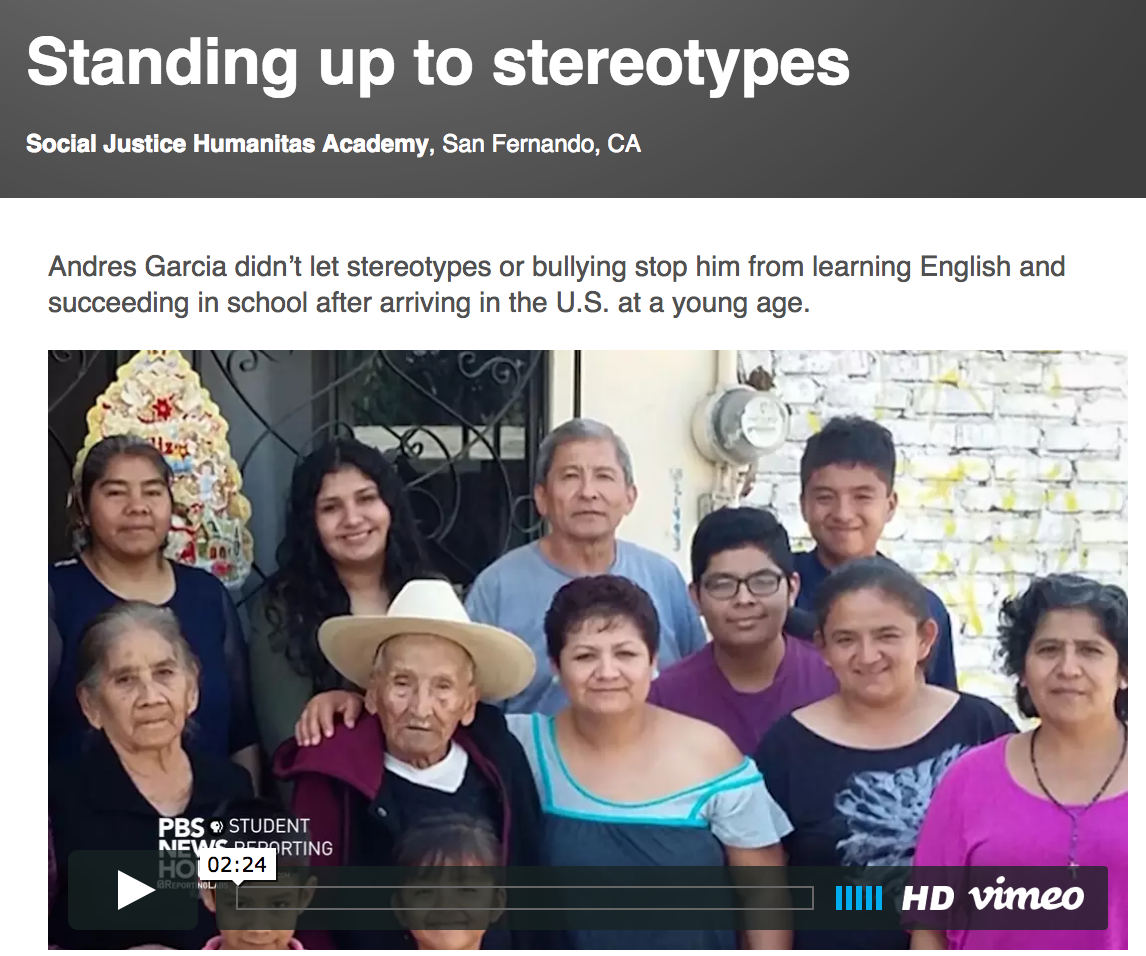
PBS News Hour Student Reporting Labs
Student Reporting Labs connect students with a network of public broadcasting mentors, an innovative journalism curriculum and an online collaborative space to develop digital media, critical thinking and communication skills while producing original news reports for PBS NewsHour Extra. Click here to access the COMPLETE …
Read More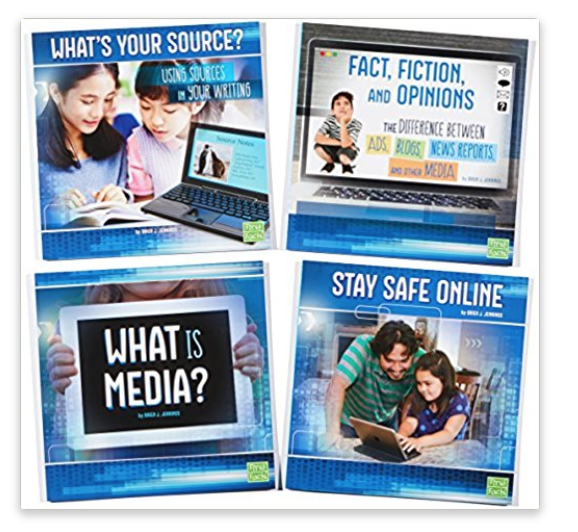
All About Media
It's never too early to be smart about media!Give emerging readers the tools to learn about media, evaluate it, and understand it. Readers will learn essential critical thinking concepts along with important topics such as understanding how to find sources and how to properly source, privacy and Internet safety, evaluating ads and news reports, and determining the differences between facts,…
Read More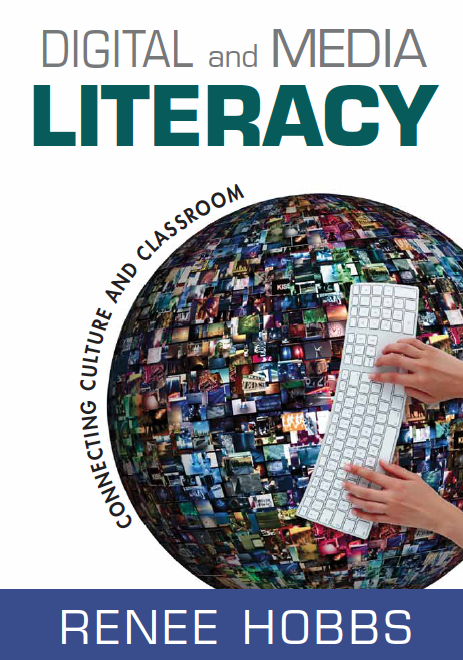
Digital and Media Literacy Education
A Review by John Robinson ORDER THE BOOK NOW How can teachers use digital and media to support academic achievement in all subjects and content areas? The answer to that question is essentially what Renee Hobbs tackles in her book Digital and Media Literacy: Connecting Culture and Classroom.…
Read More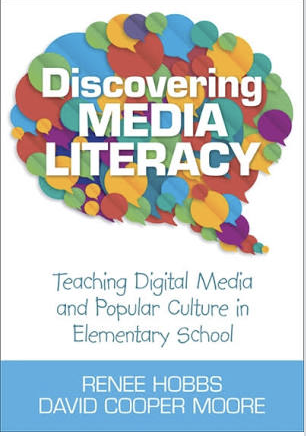
Discovering Media Literacy
Visit the website Discover Media Literacy to see lesson plans for staff development programs with teachers, along with videos and student work samples linked to our book!…
Read More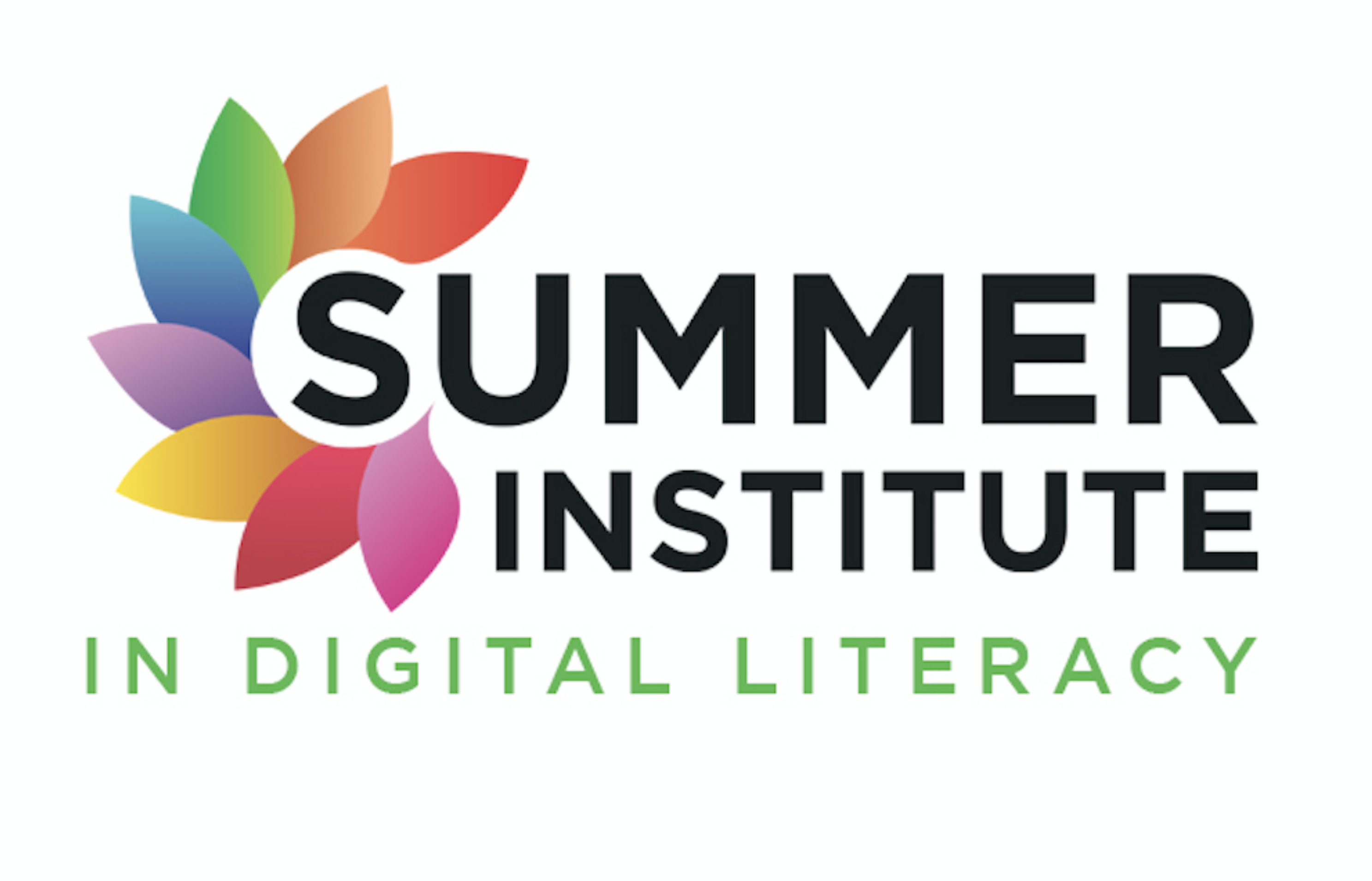
Summer Institute in Digital Literacy
A PREMIERE PROFESSIONAL DEVELOPMENT PROGRAM Overview. This six-day institute focuses on how literacy is changing as a result of emerging media and technologies. We'll consider the implications of this cultural and technological shift for teaching and learning. Join us in exploring innovative approaches now being used by K-12 educators, librarians, and college and university faculty. You…
Read More
Digital and Media Literacy: A Plan of Action
This plan offers specific steps for policymakers, educators, and community advocates to develop a community education movement for digital and media literacy. Whether it’s touch screen computers, smart phones, or user-generated news sites, access to information does not automatically translate into knowing how to use these tools in effective ways that help people in their everyday lives.WHY IT…
Read More
Tuning in to Media: Literacy for the Information Age
PART 1: Analyzing News PART 2: Analyzing Entertainment PART 3: In the Classroom Winner of a Parent's Choice Award, Tuning in to Media offers a compelling look at the powerful and pervasive role that mass media play in our society. Examines the media coverage of the L.A. riots. Showcases elementary, middle school and high schools. Watch…
Read More
Media Literacy and Cultural Understanding of People in the Middle East
Using a university-school partnership model, we provide a variety of forms of teacher education programs, in-school mentoring, and programs that bring together mediamakers, graduate students, teachers and children to understand how to use the power of media and technology to promote global understanding. Watch the YouTube video overview below and then read the two scholarly articles we wrote…
Read More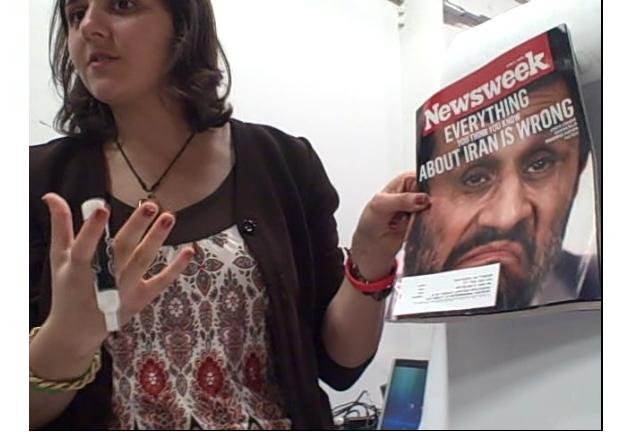
Iranian Youth and Media Literacy
Curriculum Resources from the Youth Media Workshop for Iranian American Youth, held in Philadelphia from August 3 - 7, 2009 at the Asian Arts Initiative. See the lesson plans and reflections. Developed by Aggie Ebrahimi Bazaz, this program was also co-sponsored by: …
Read More
Messages & Meanings
Developed in collaboration with the Newspaper Association of America, Messages & Meanings is a collection of curriculum activities for analyzing print and electronic media. This resource includes instructional activities for strengthening access, analysis, evaluation and communication skills, as well as evaluating new technologies like internet web pages. Cross-media comparison activities…
Read More